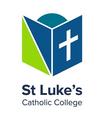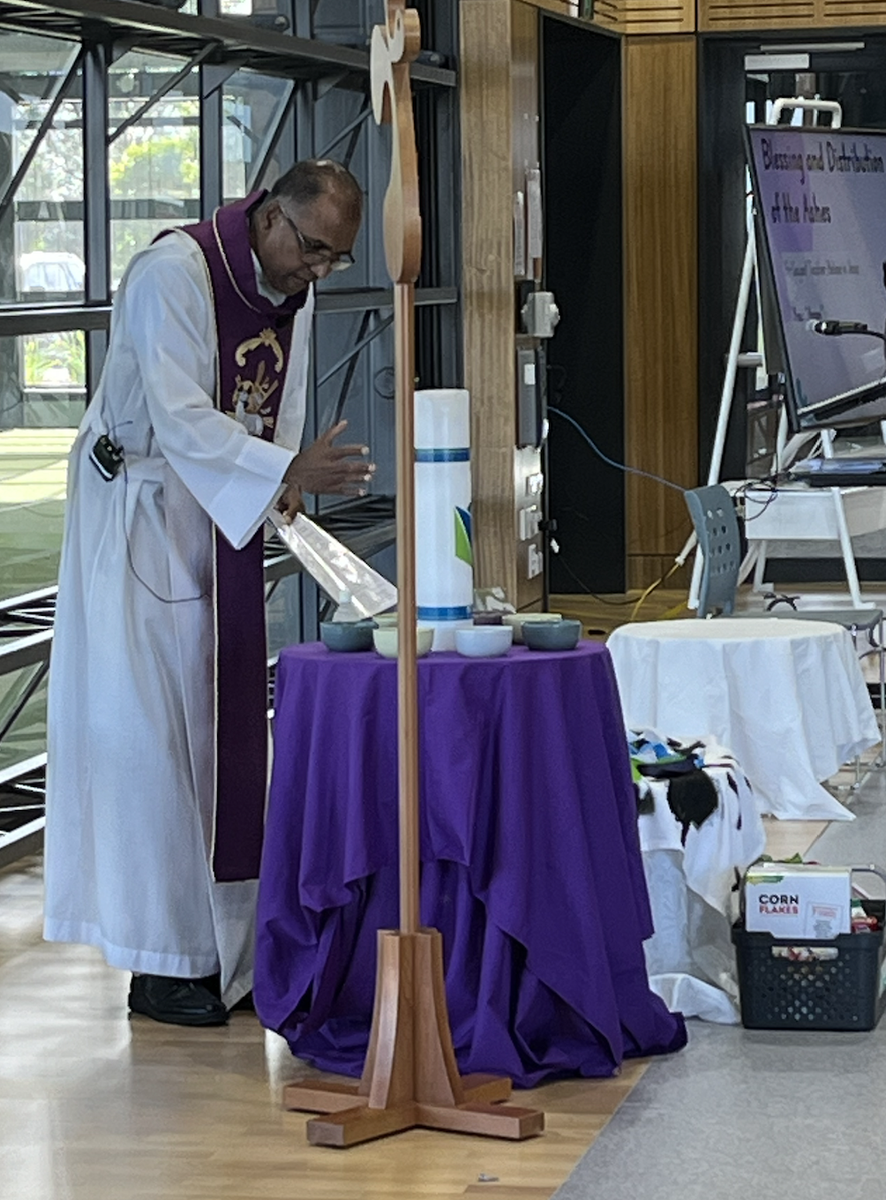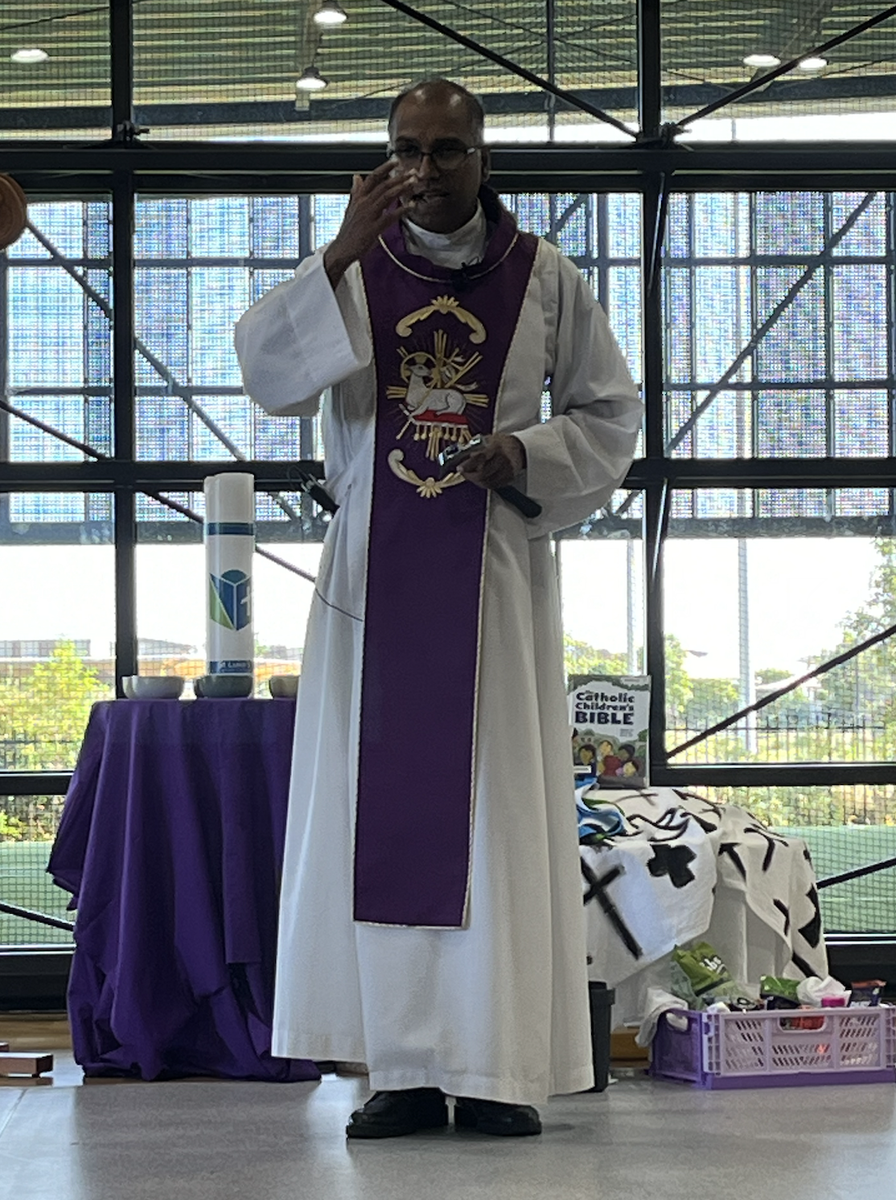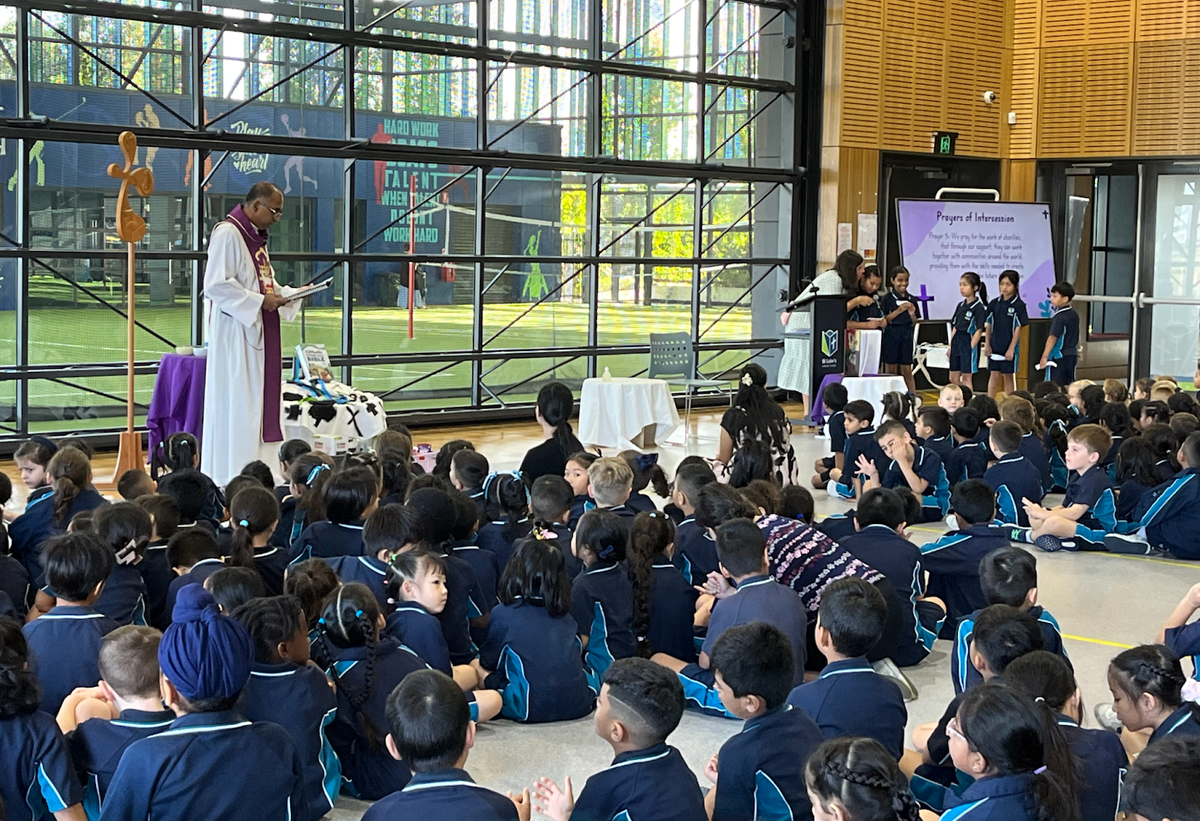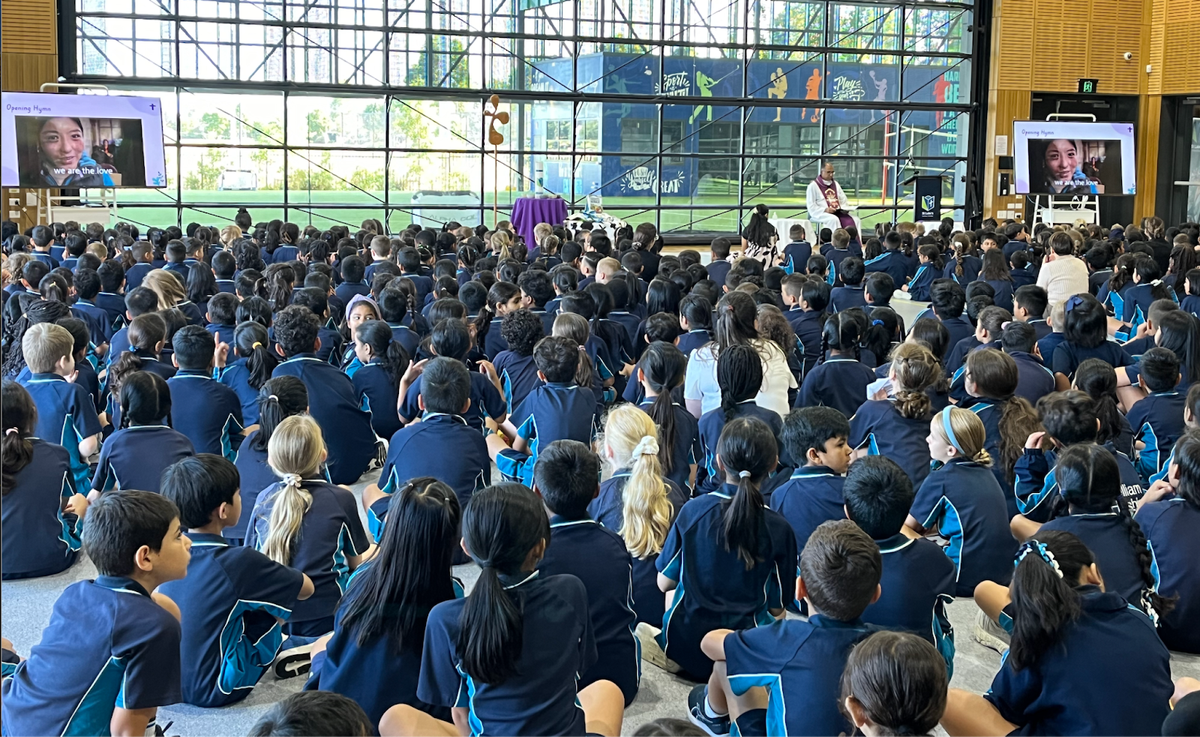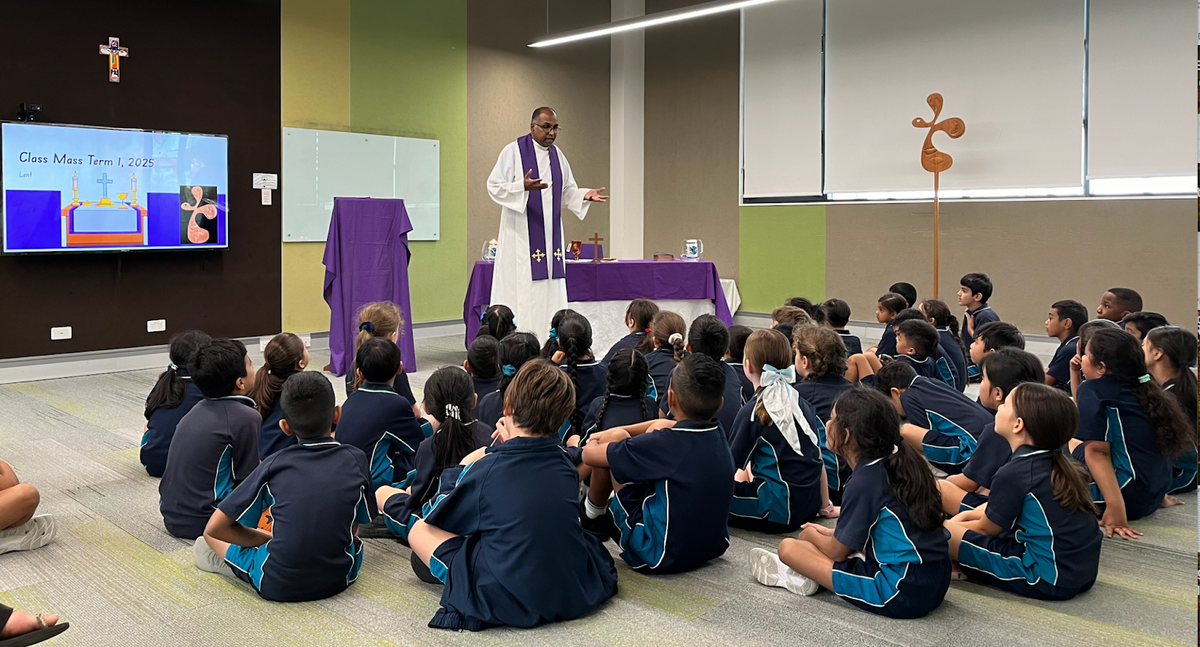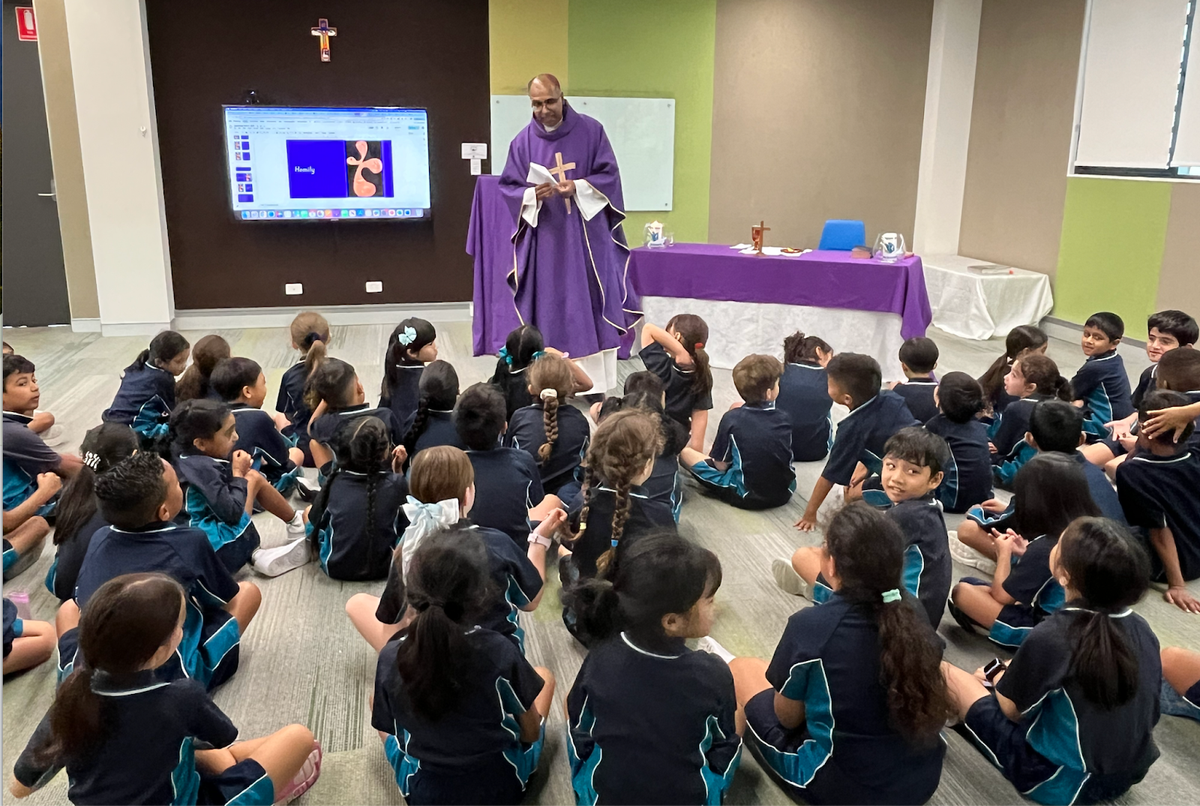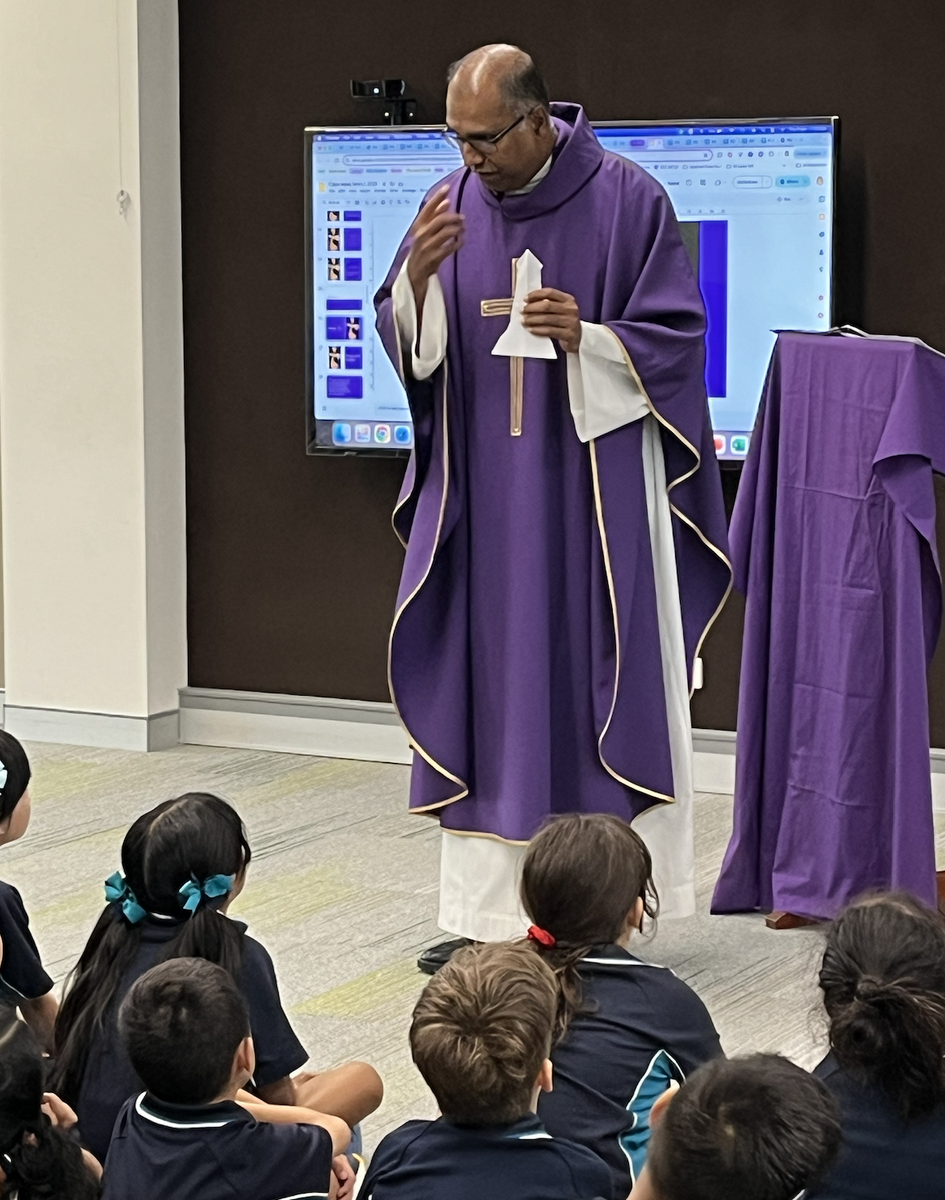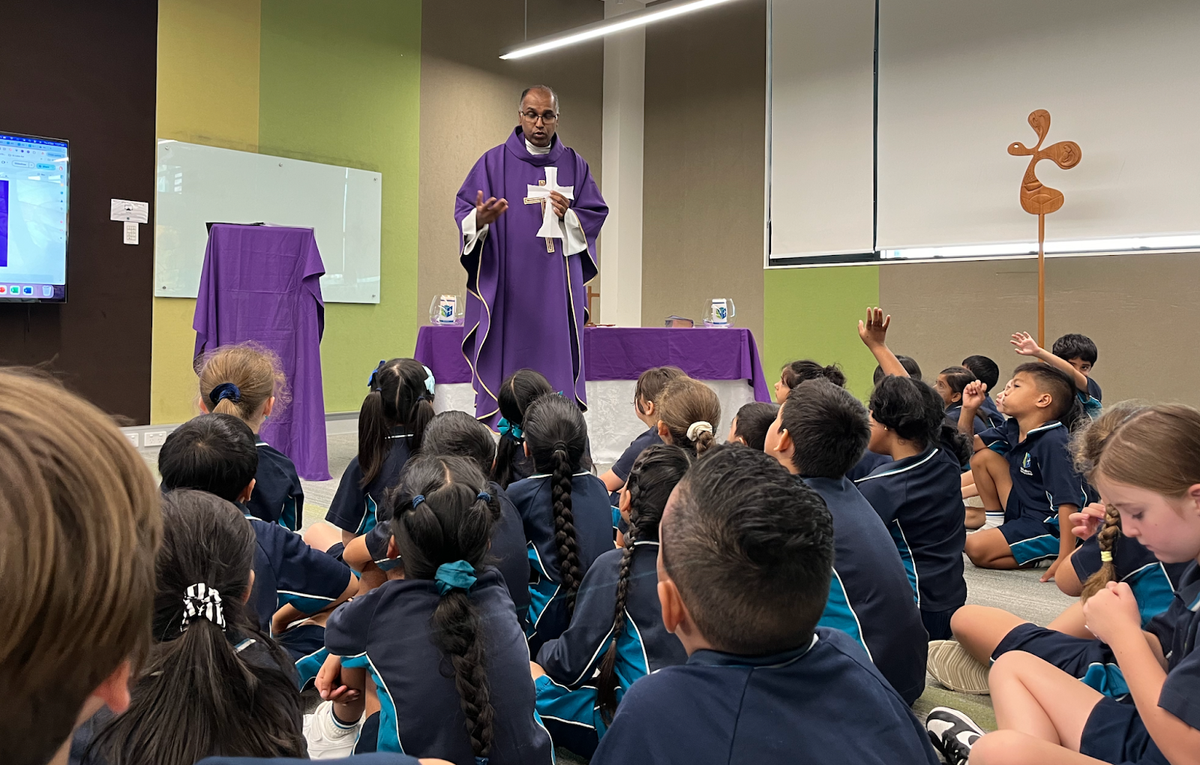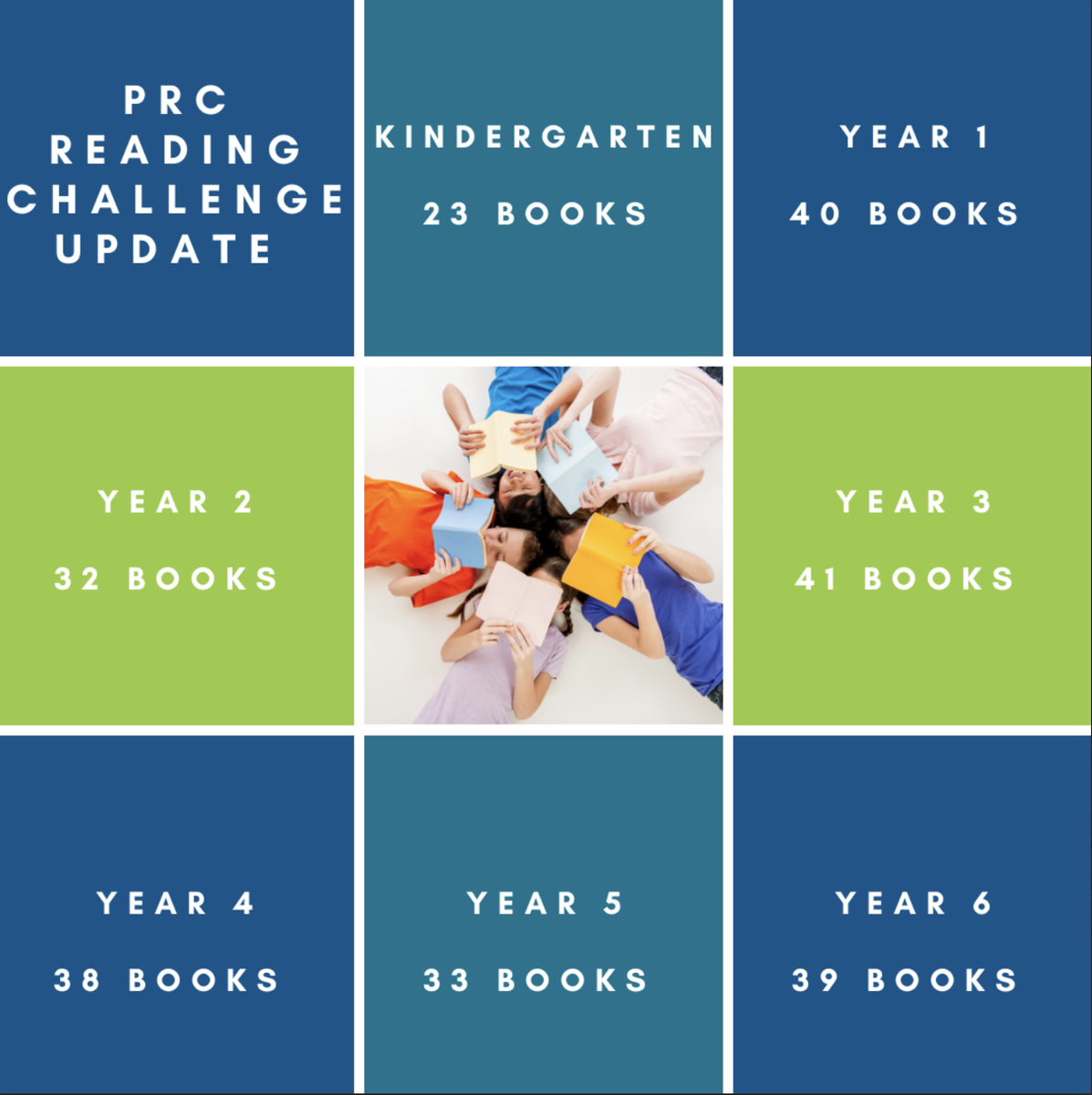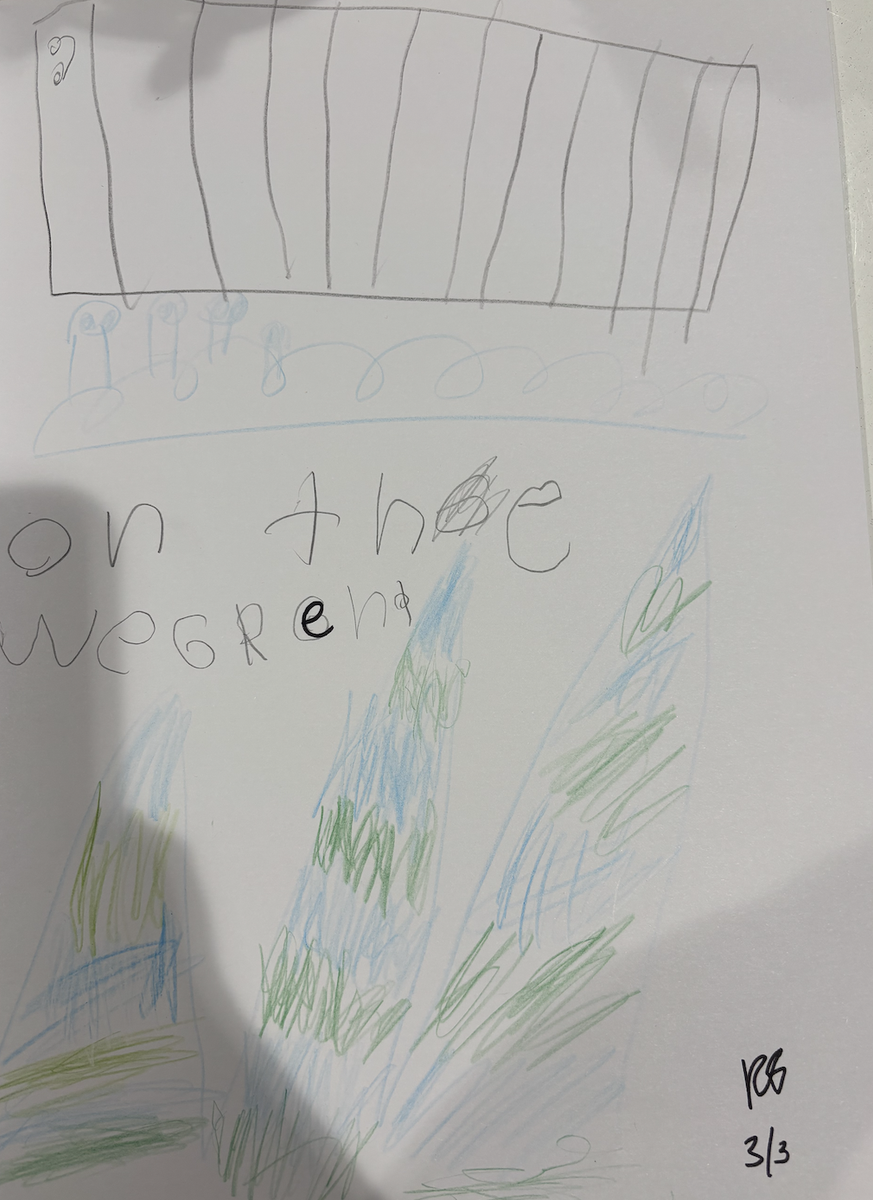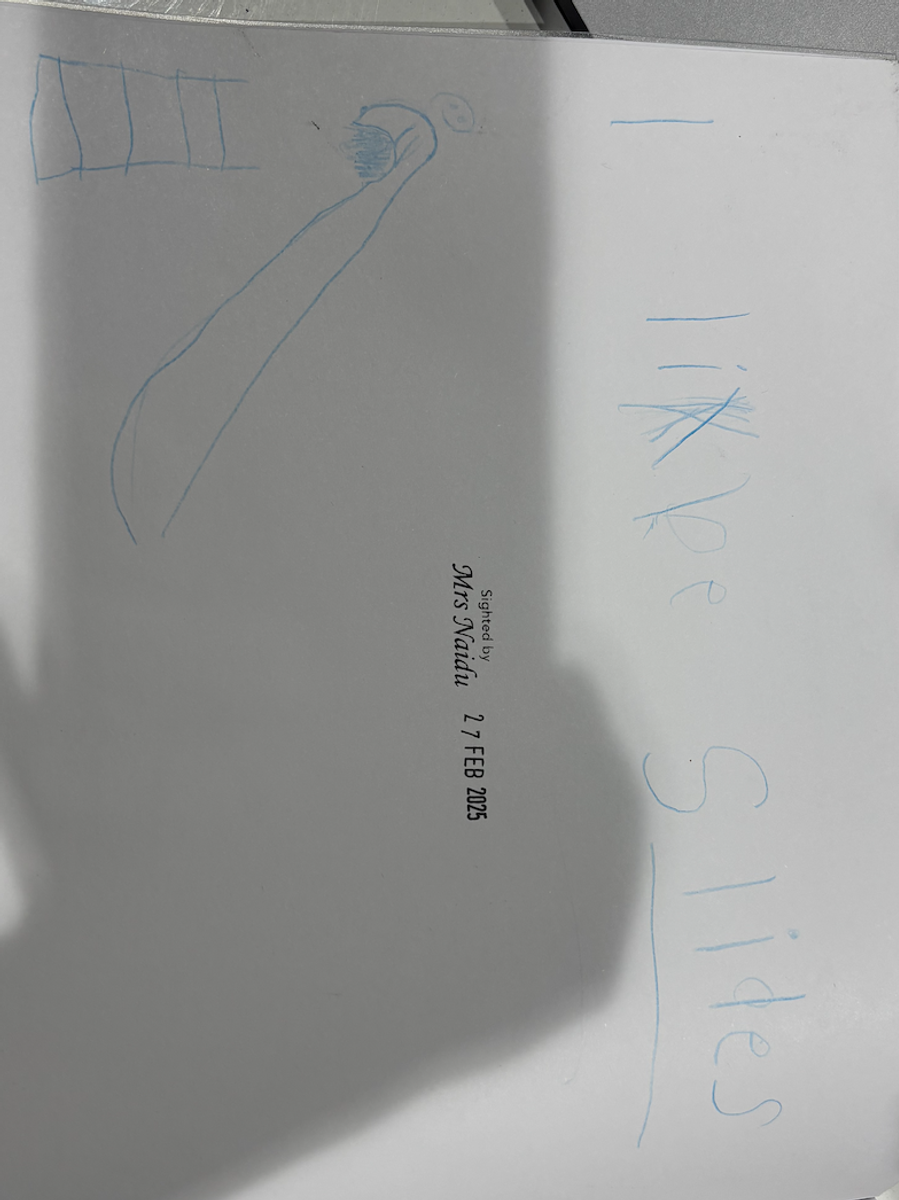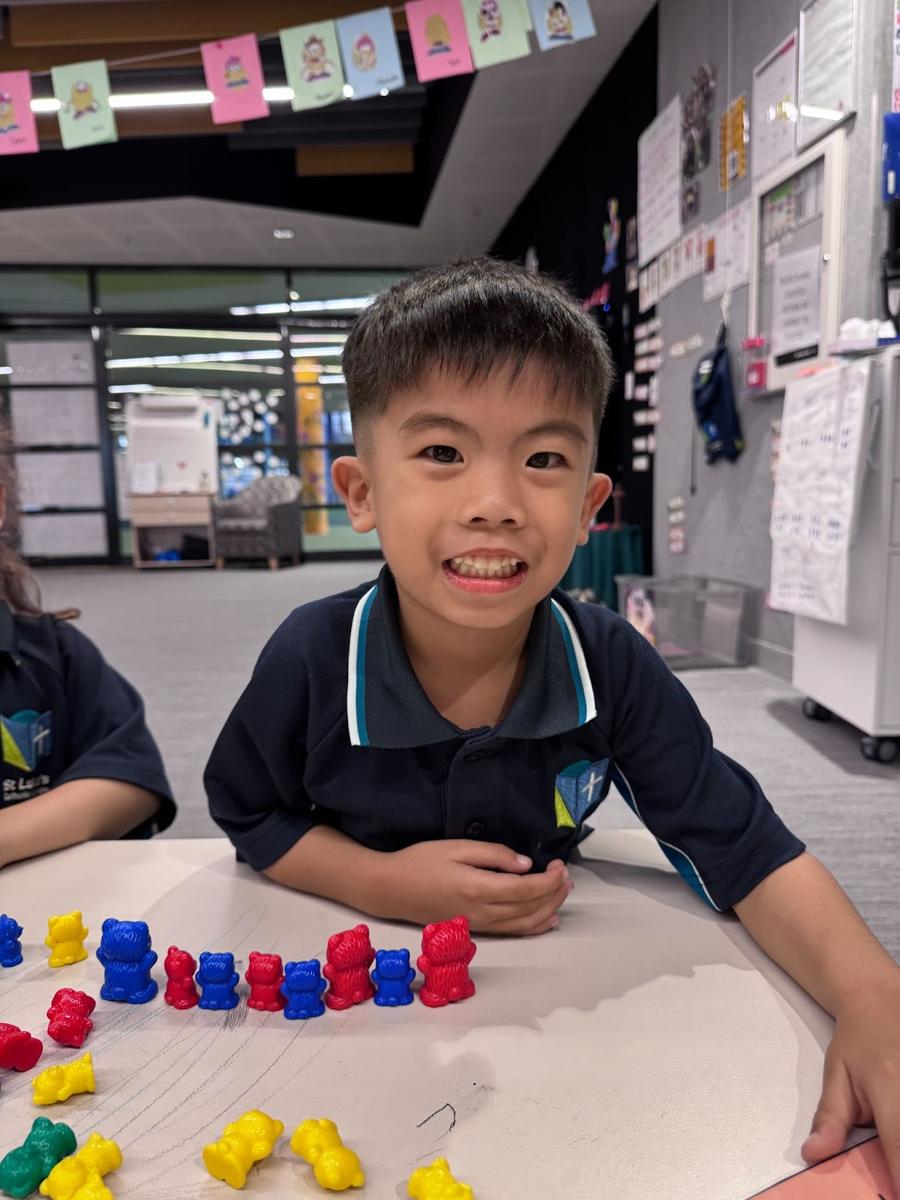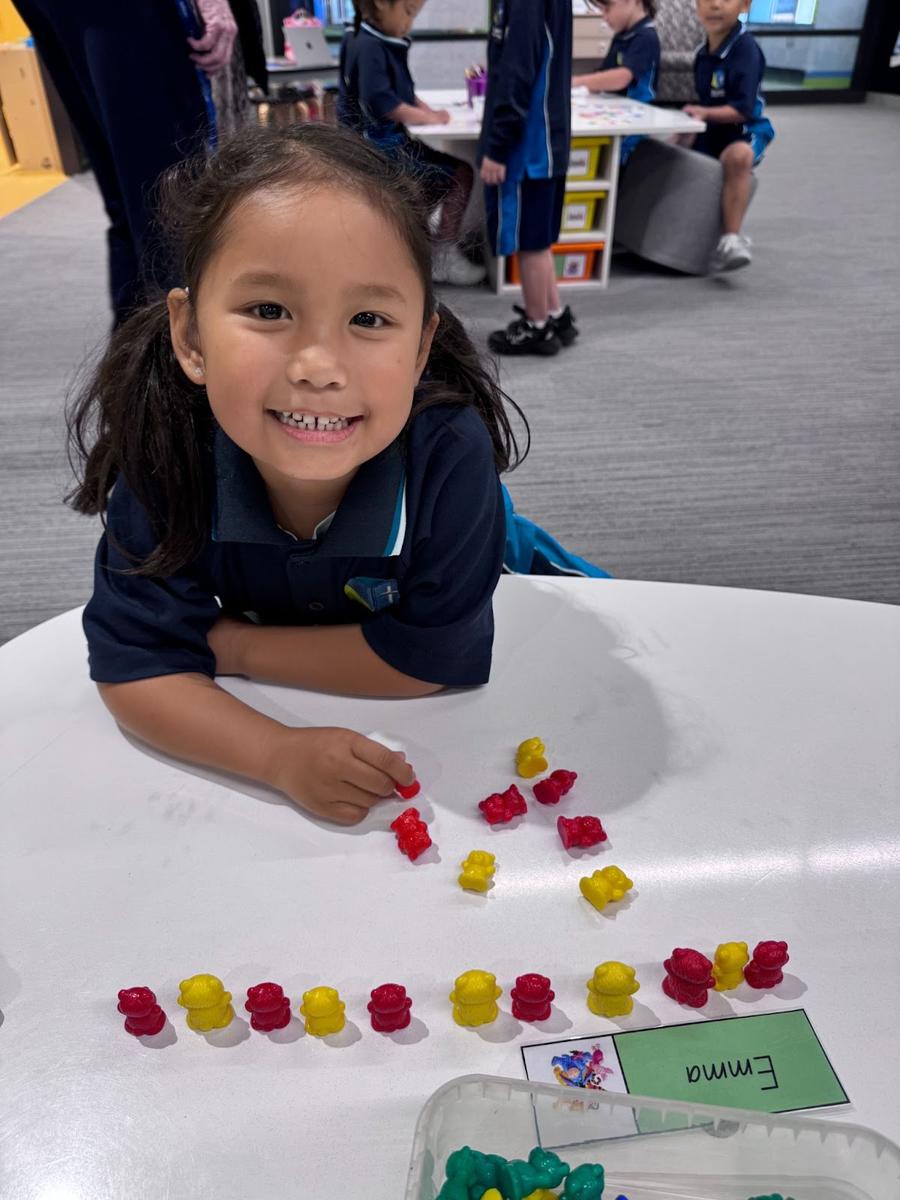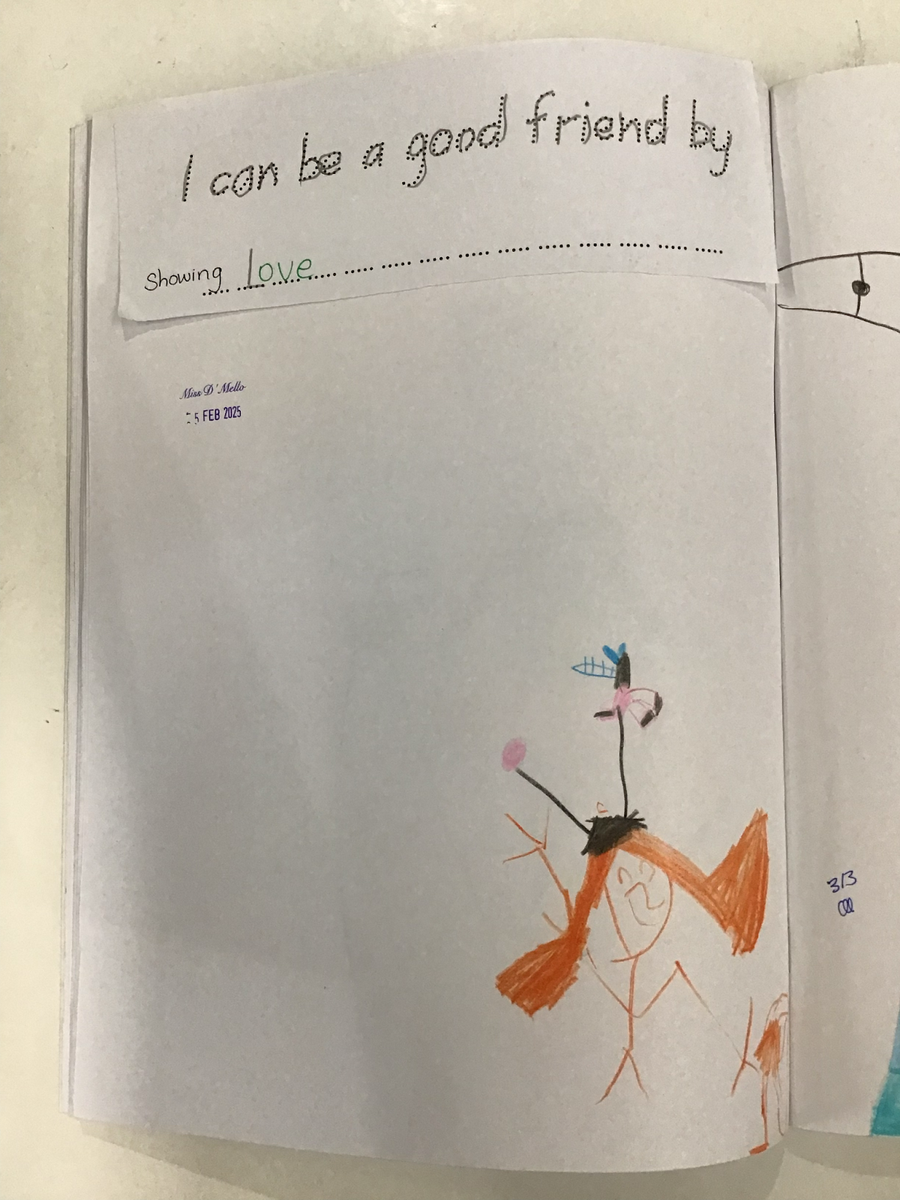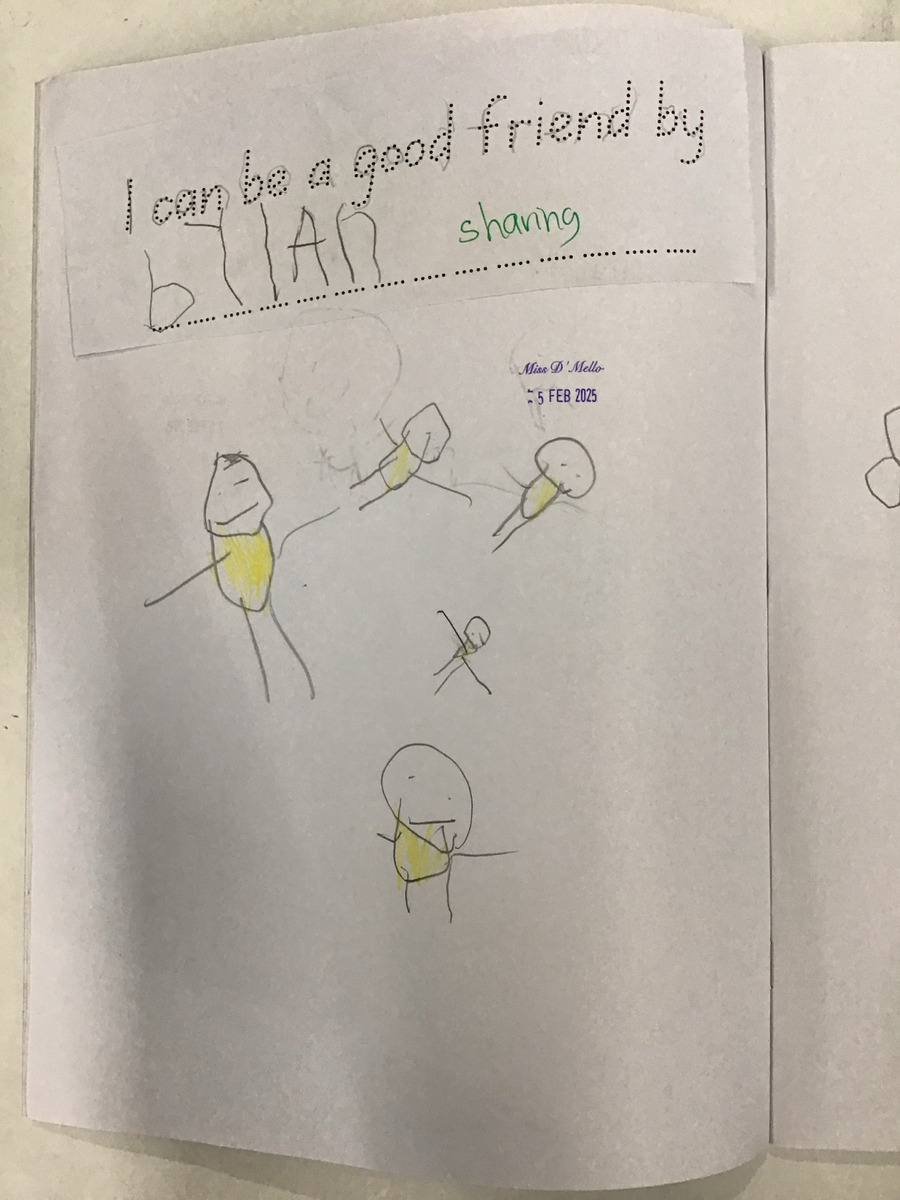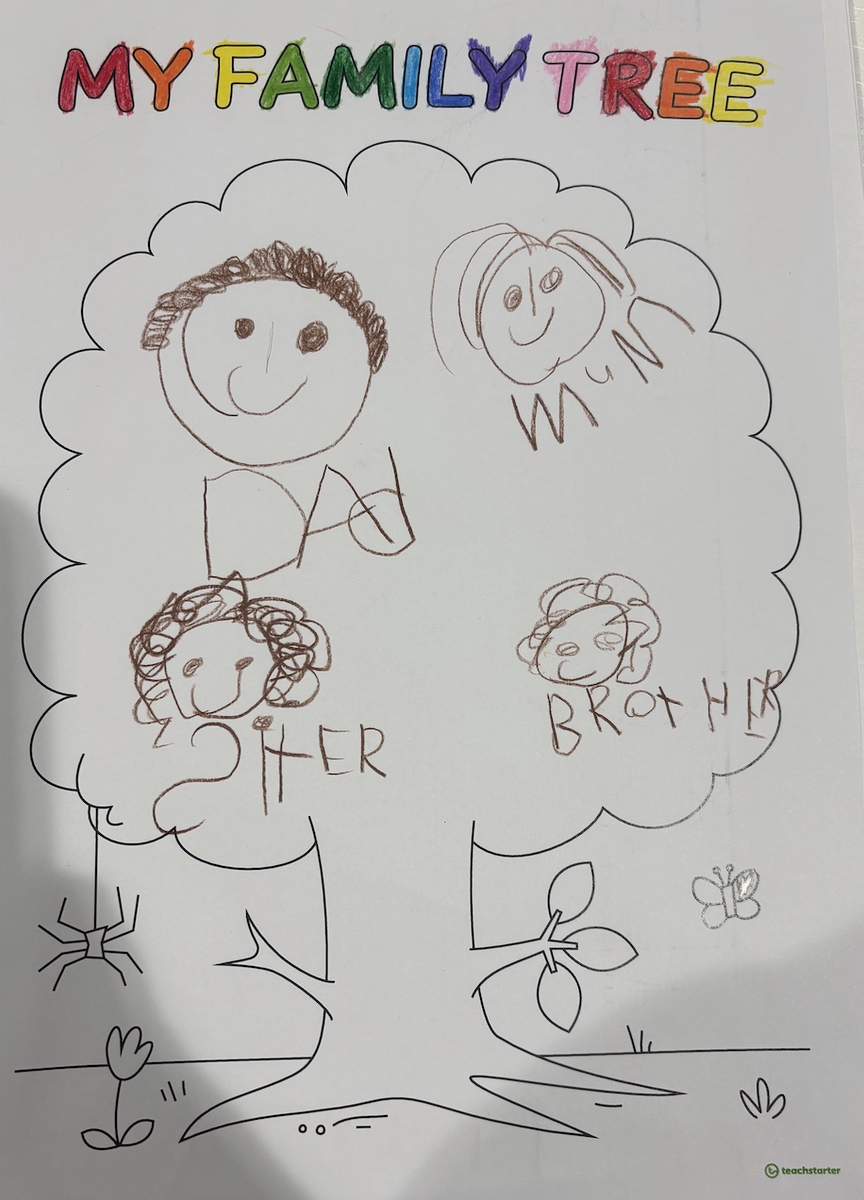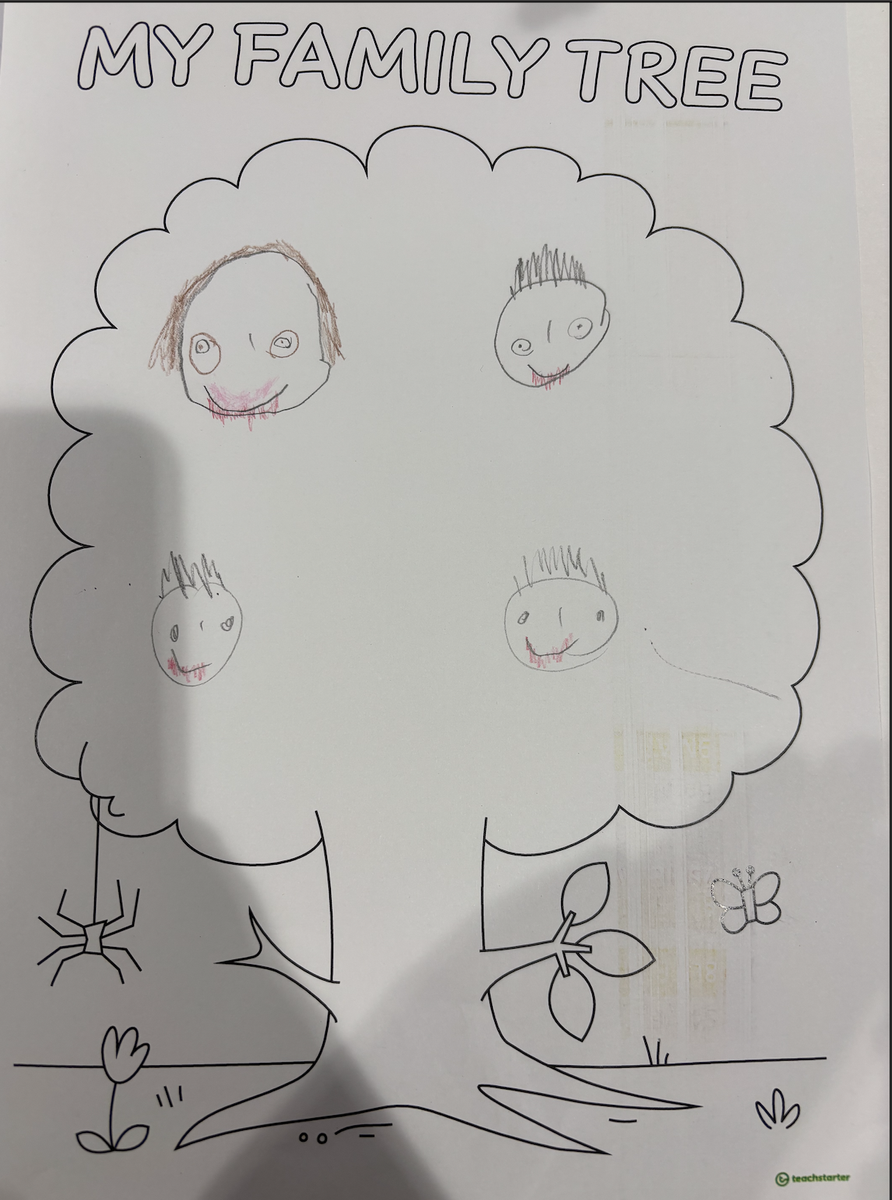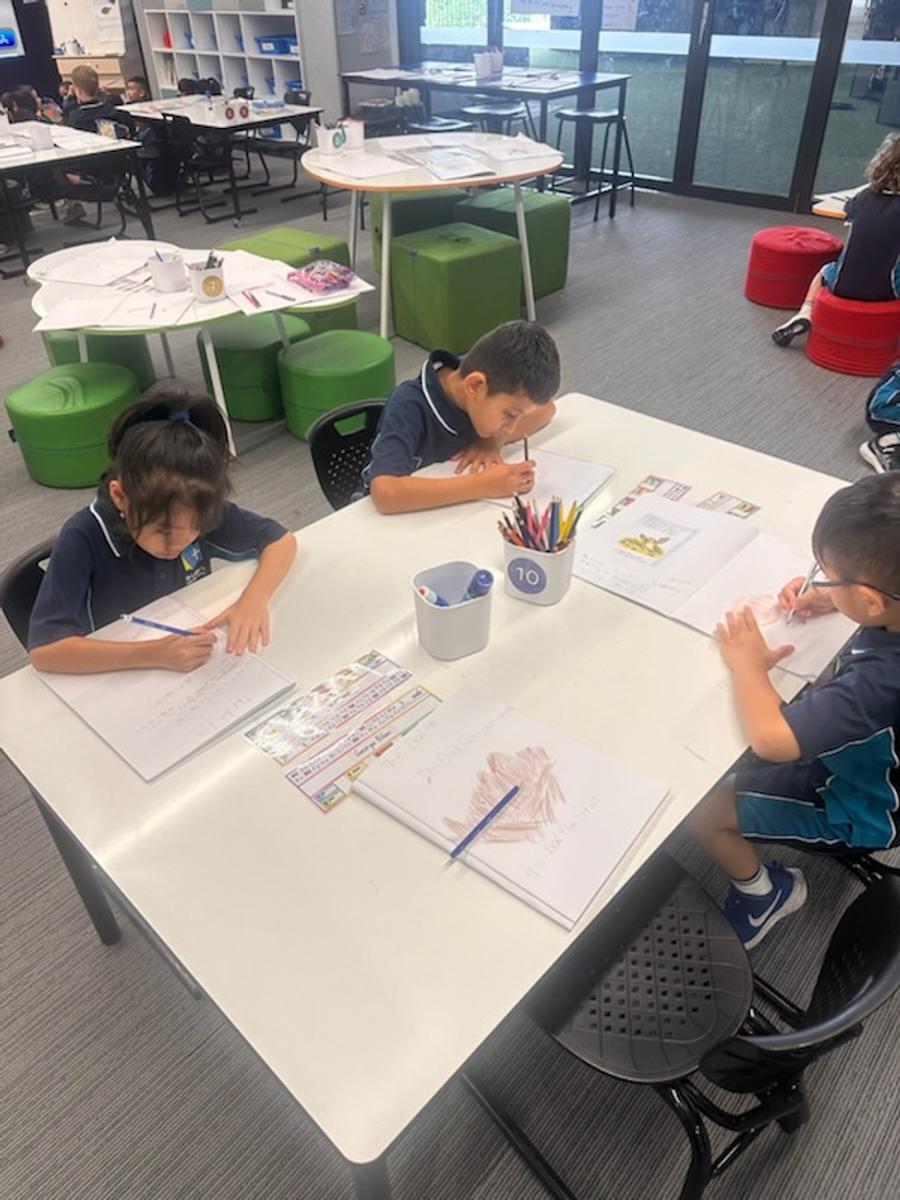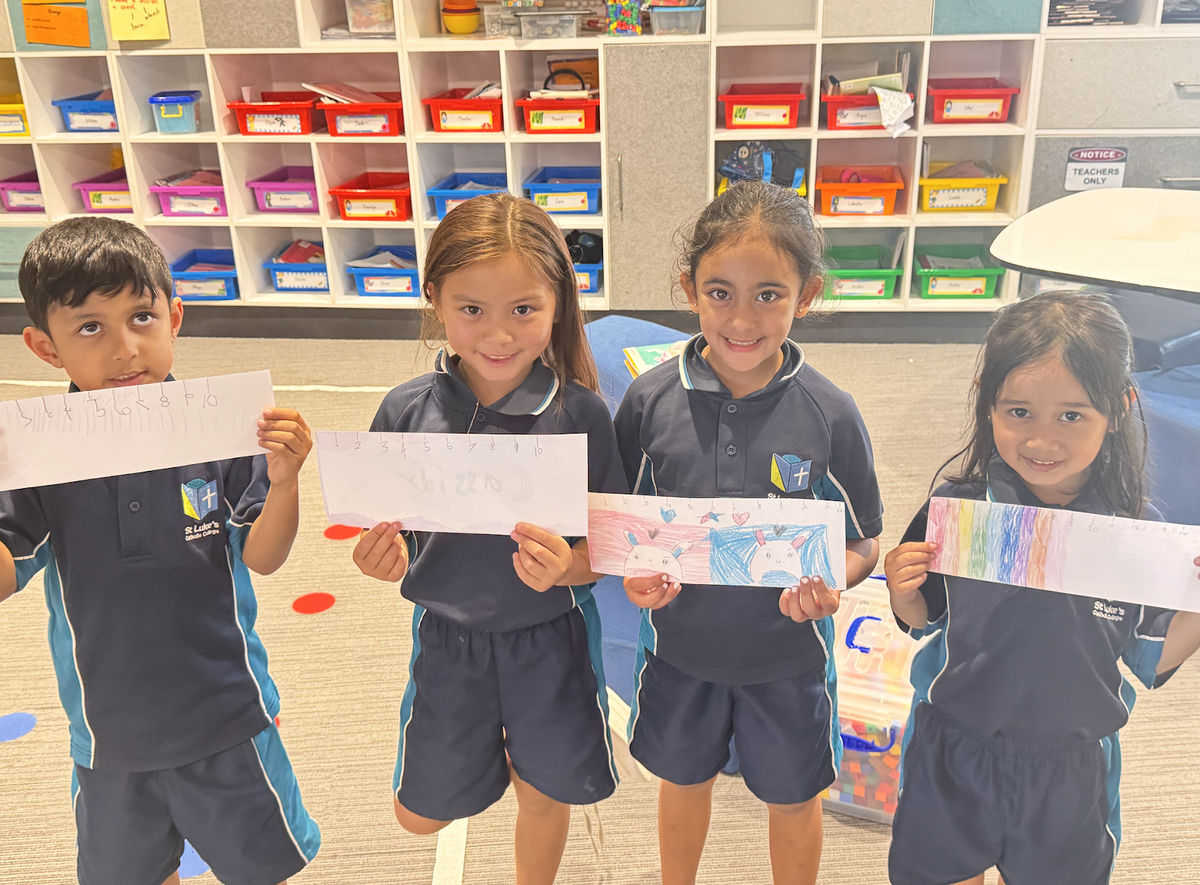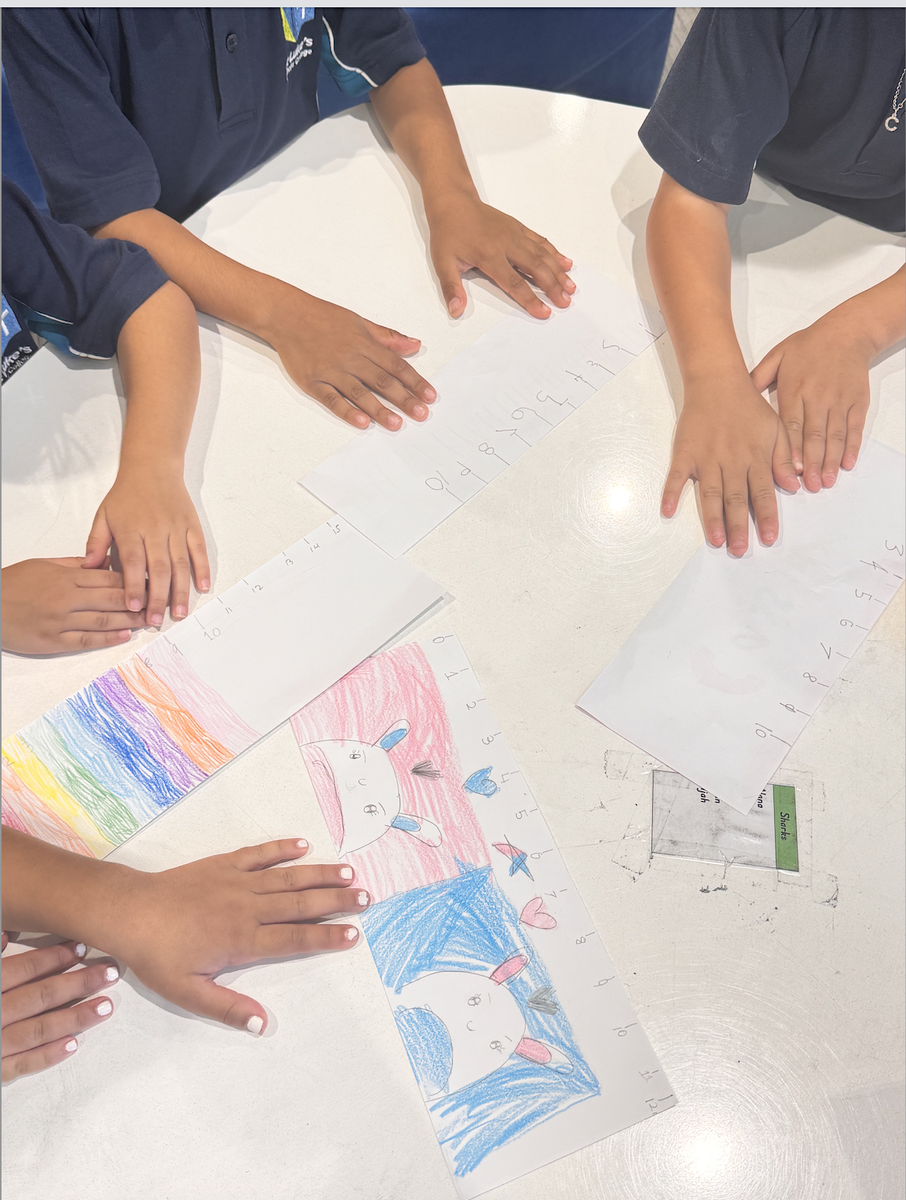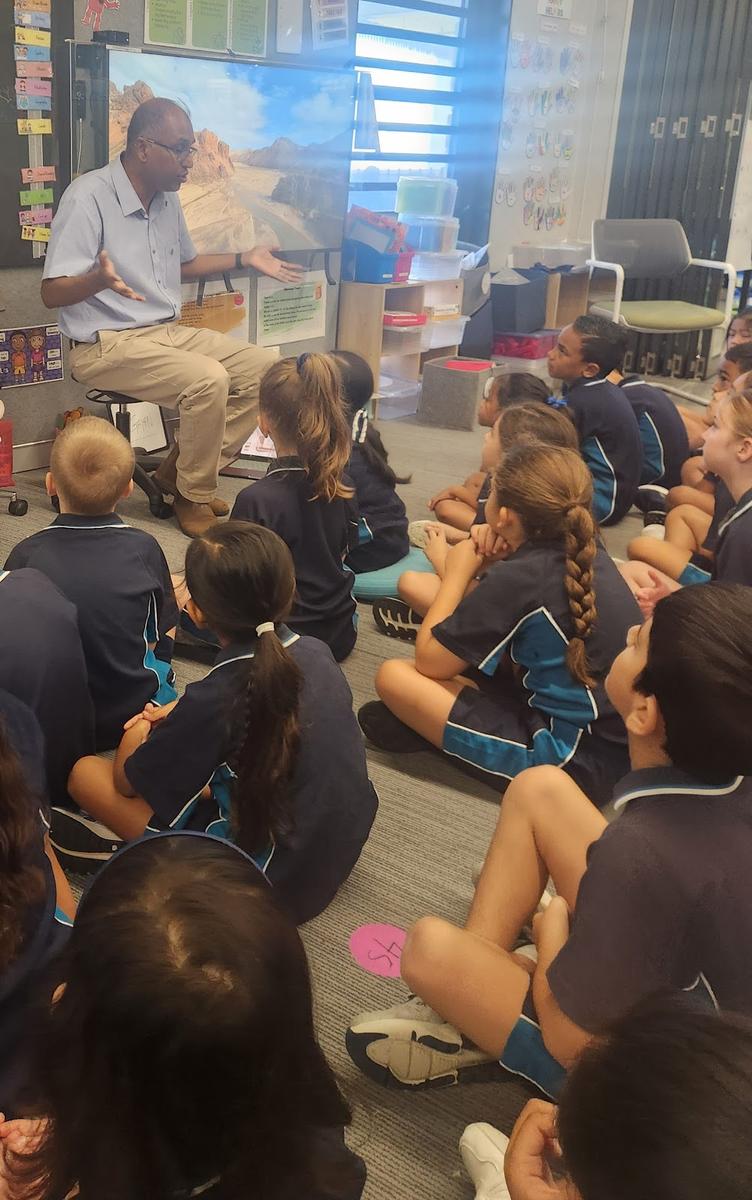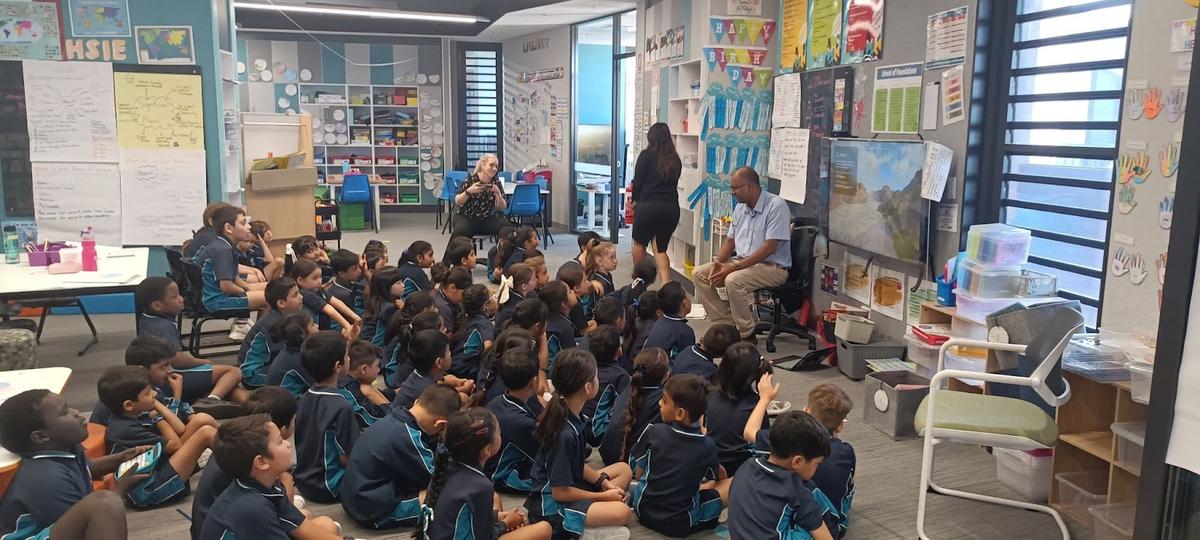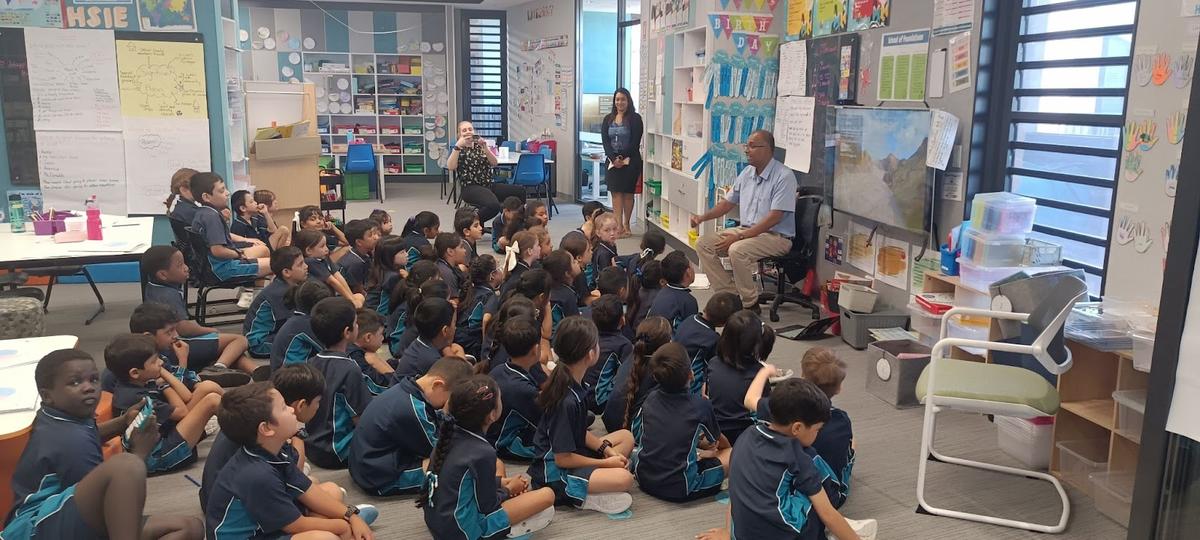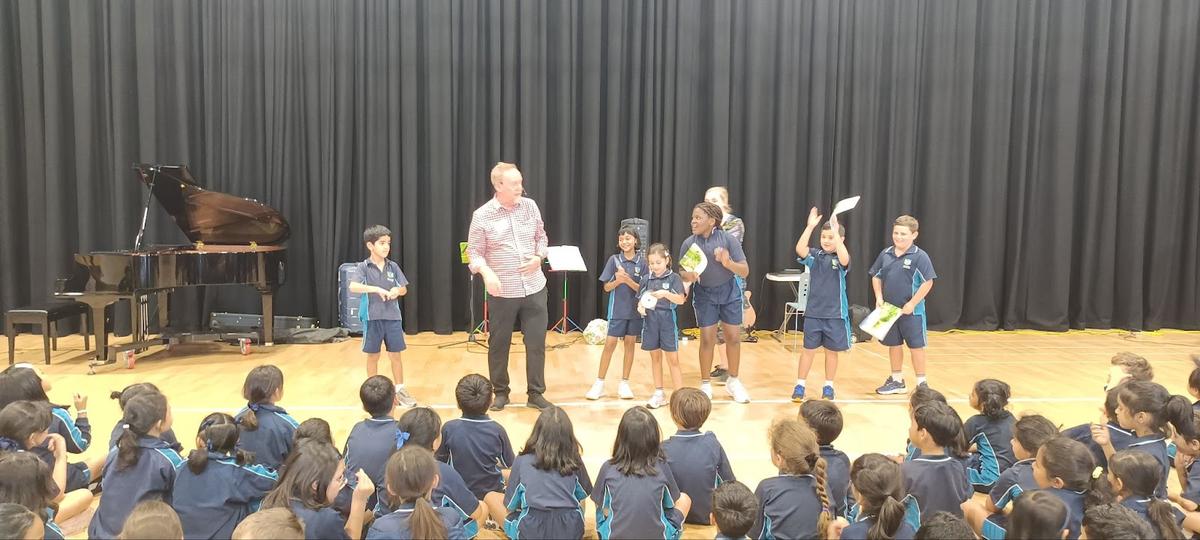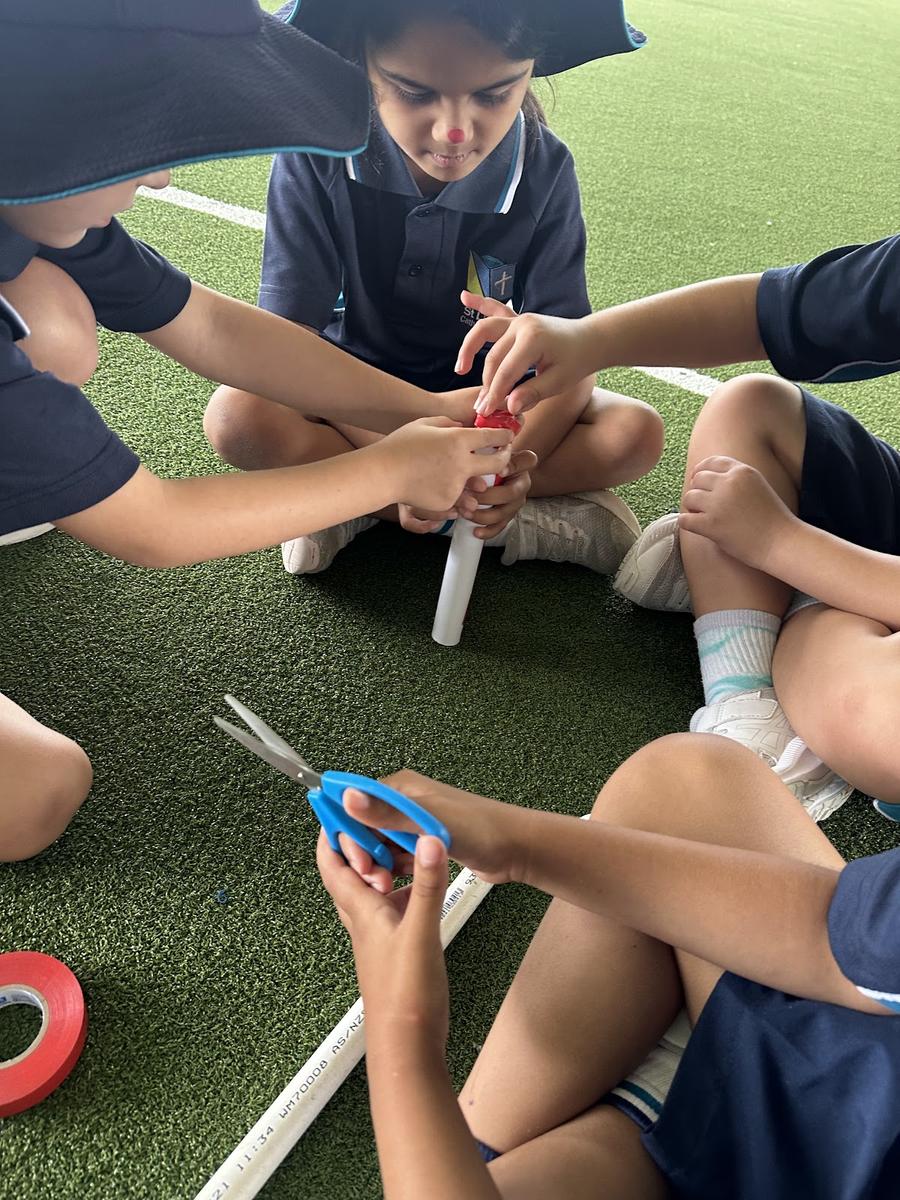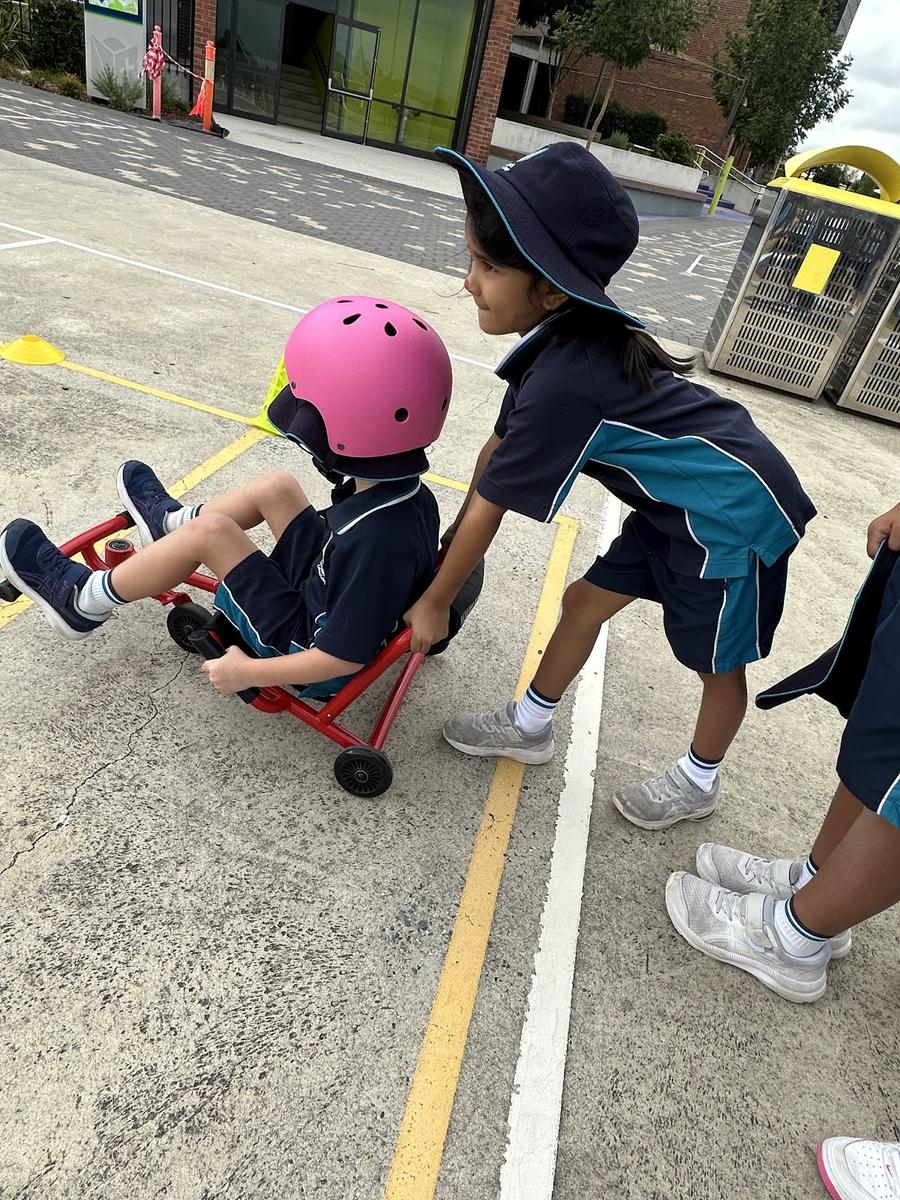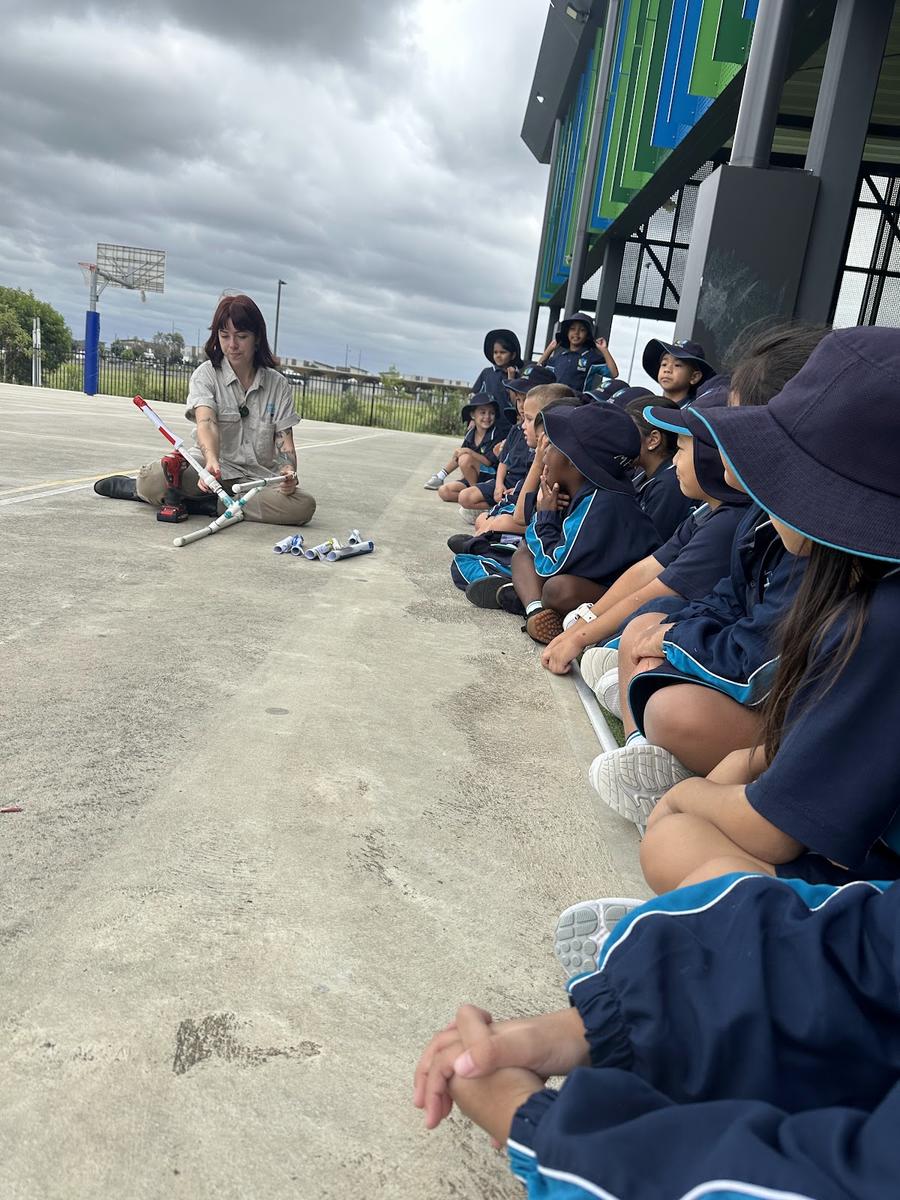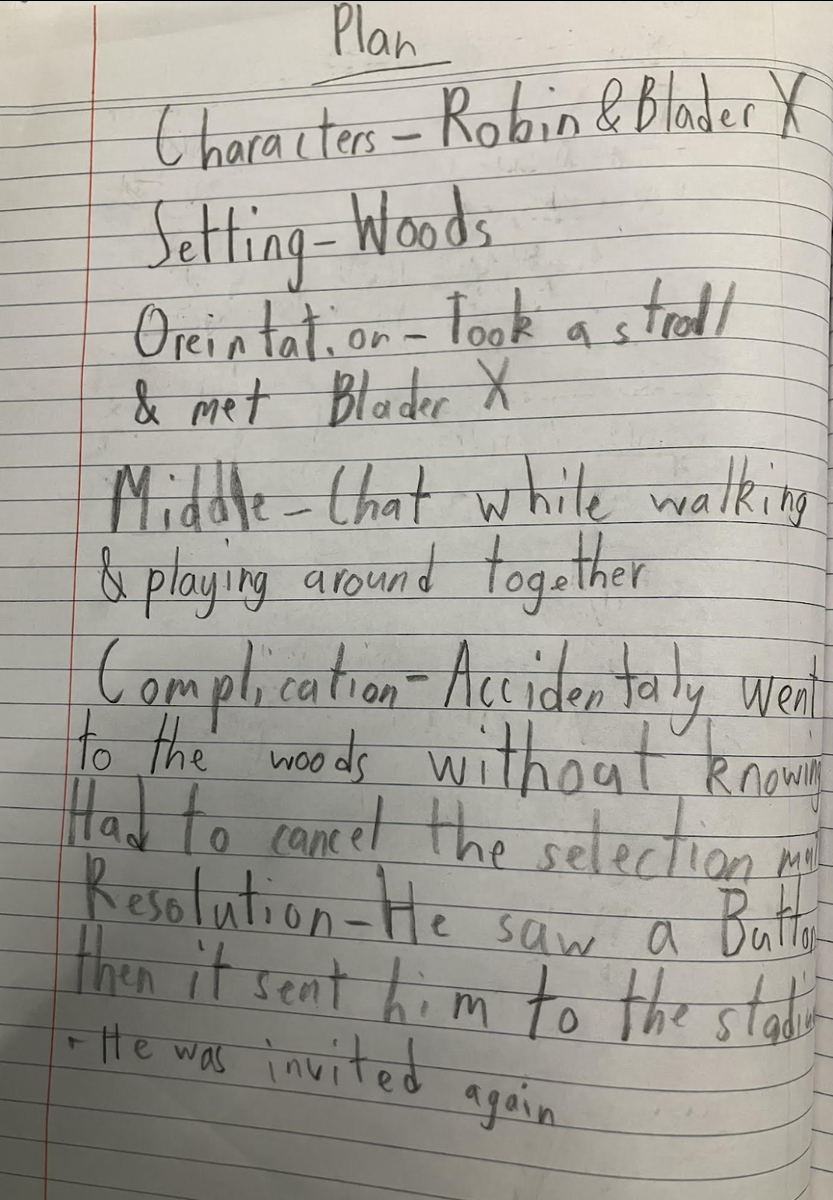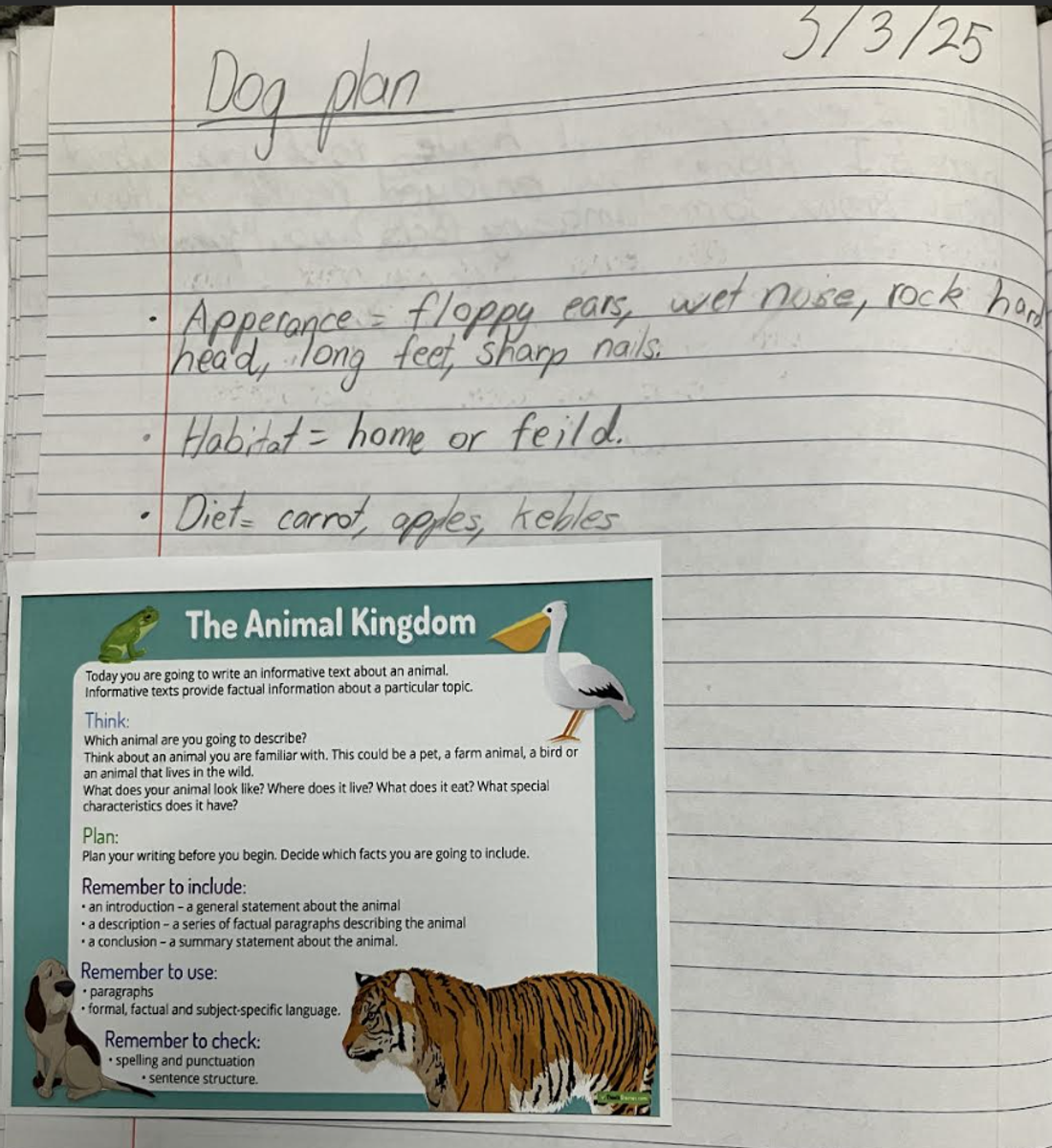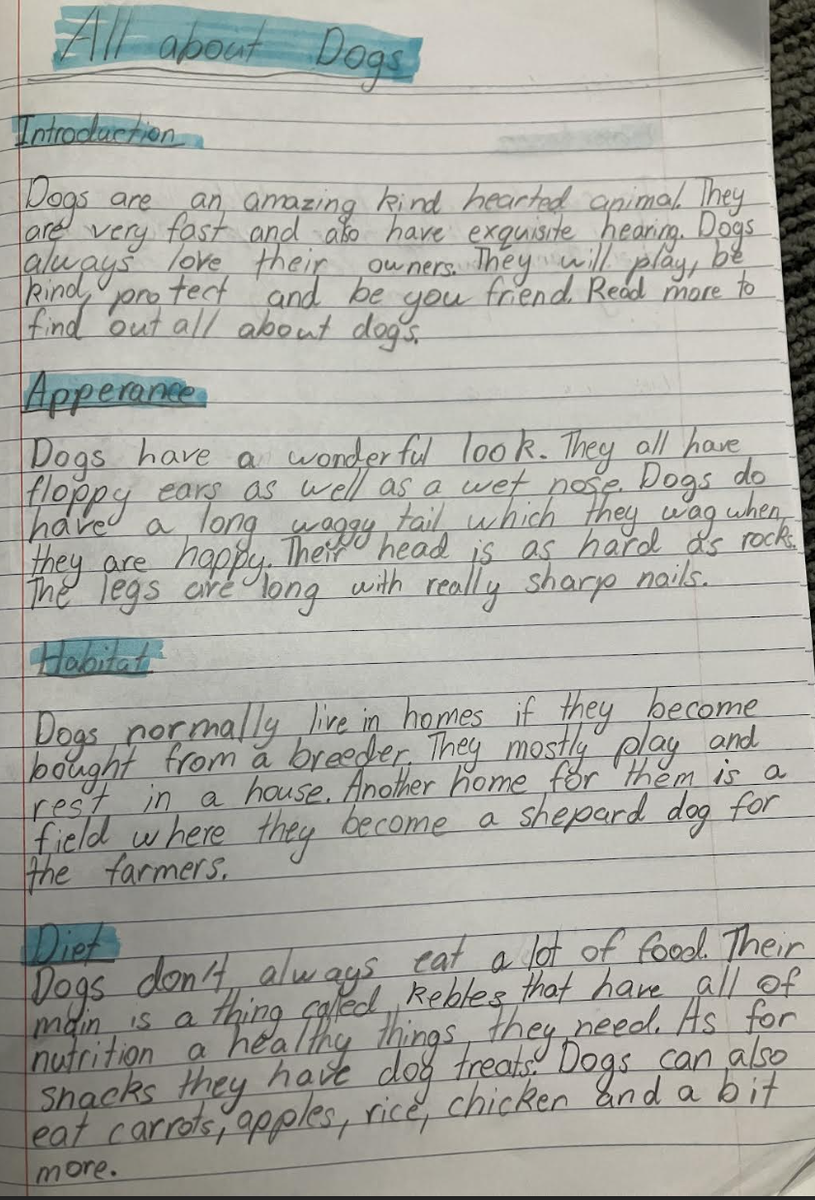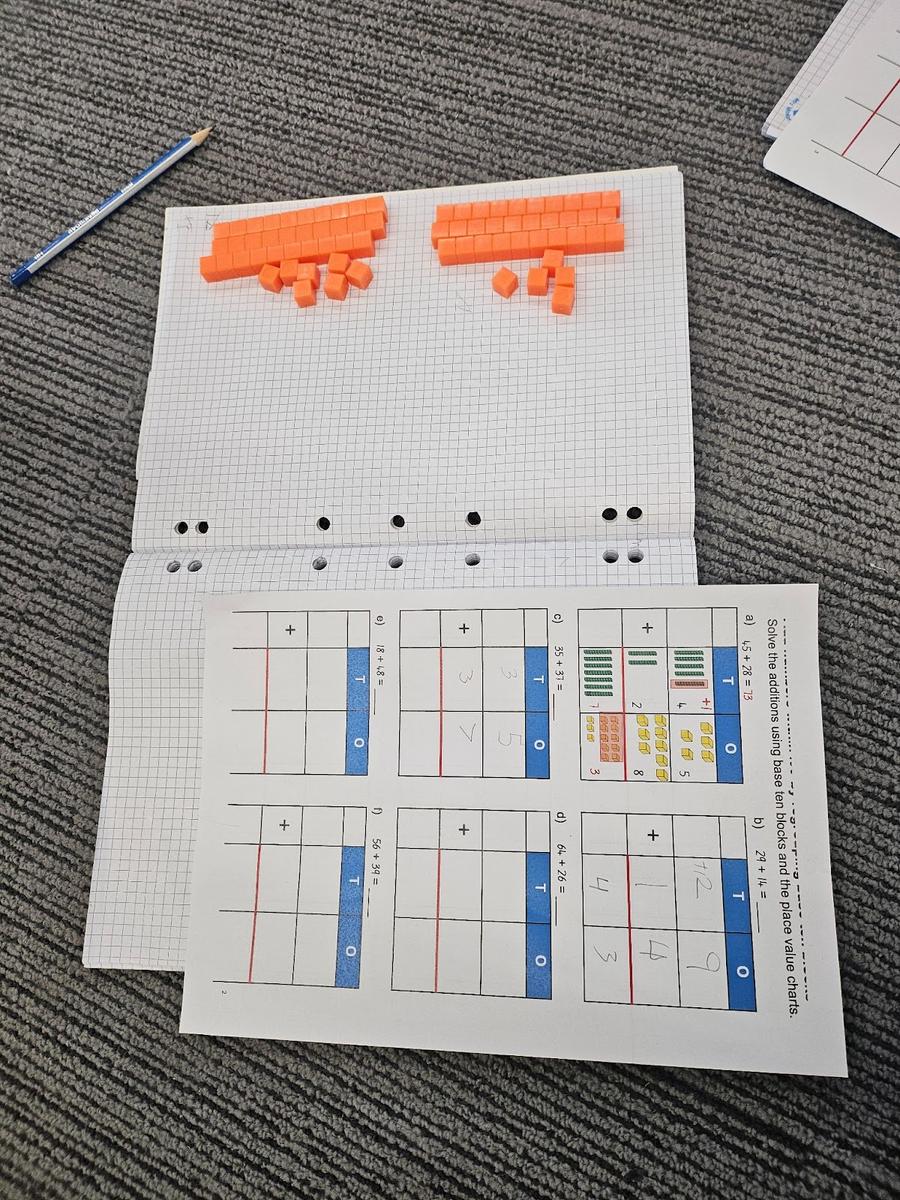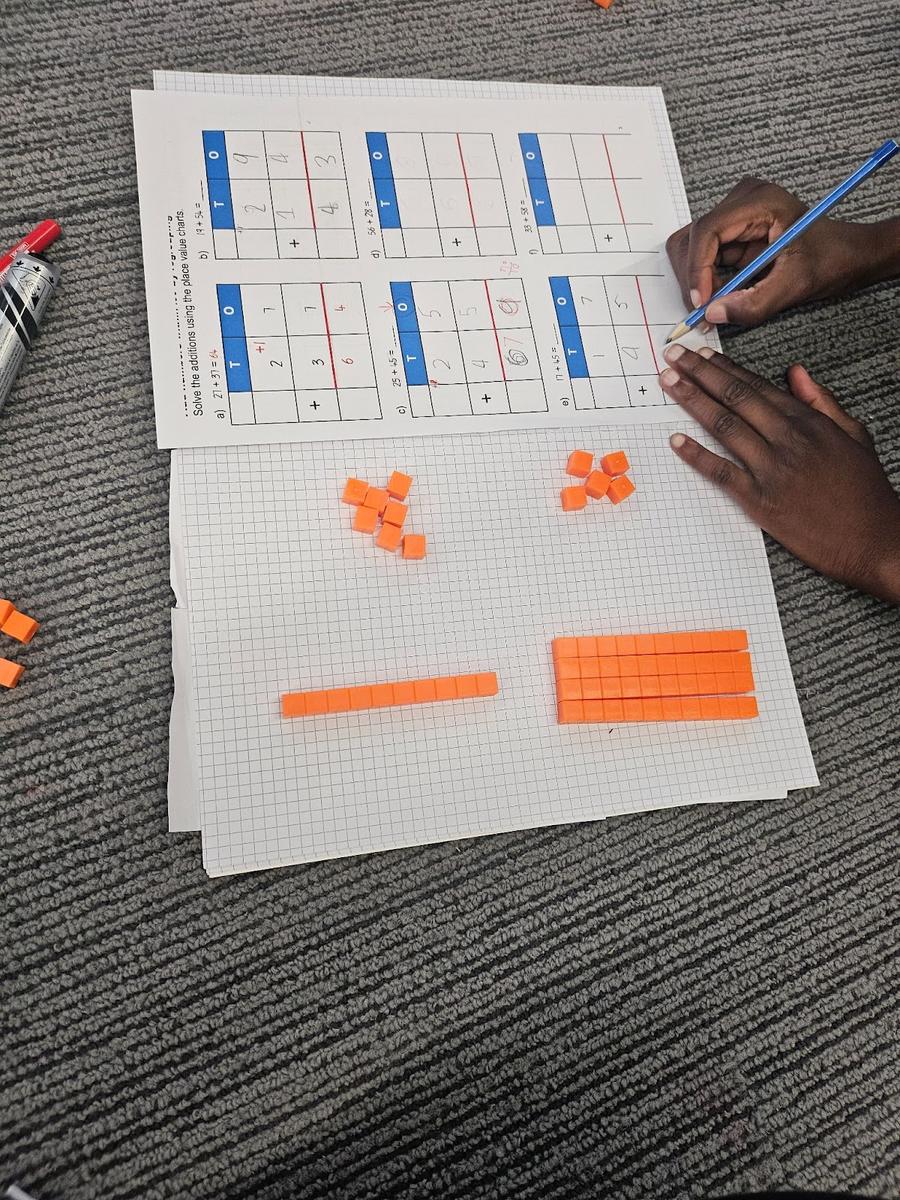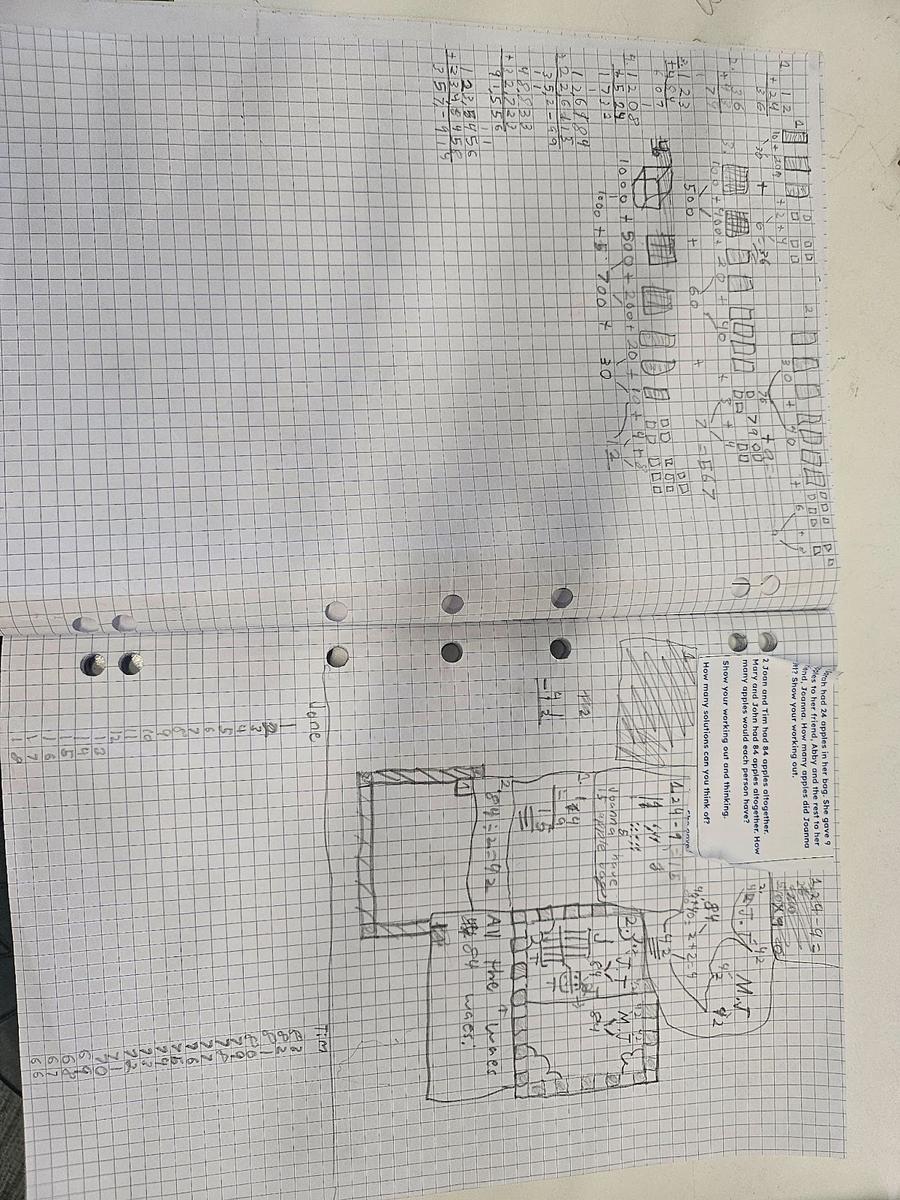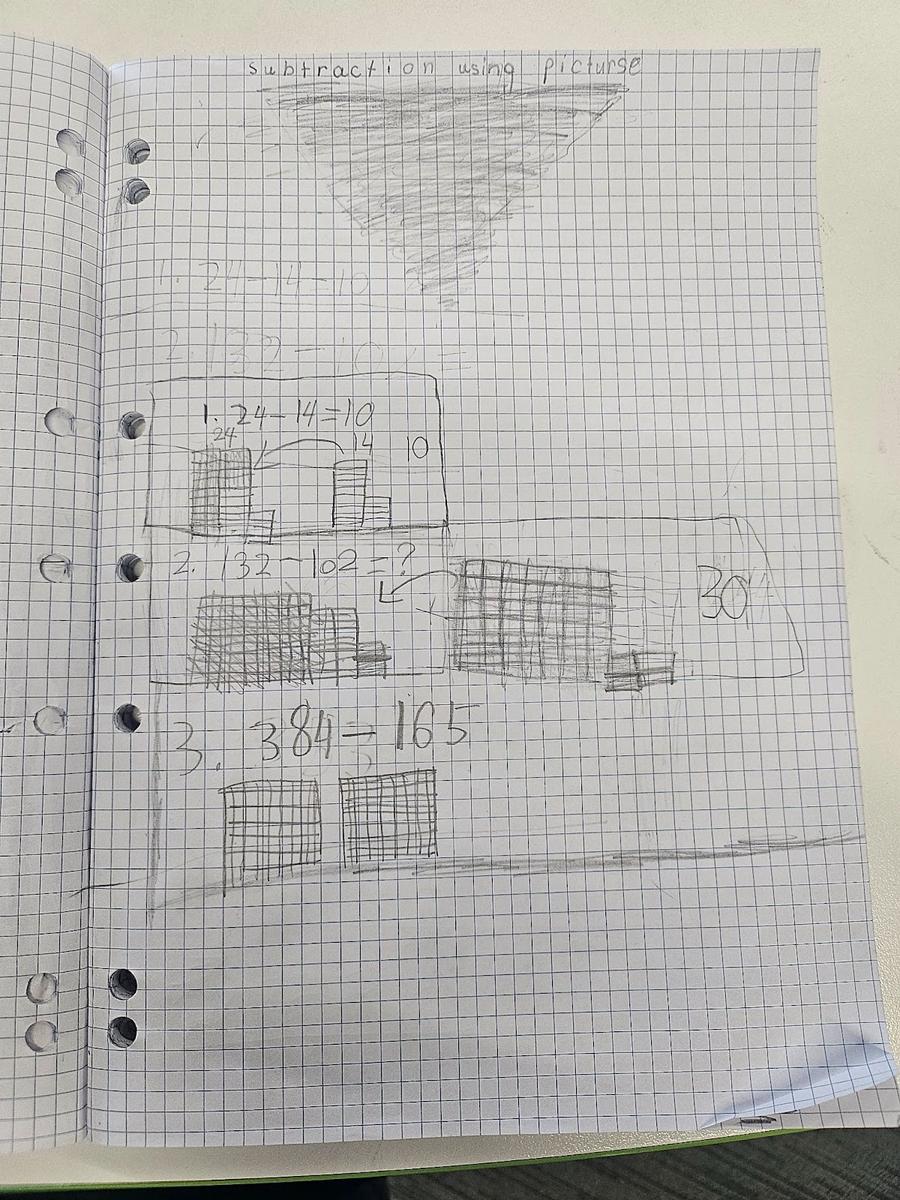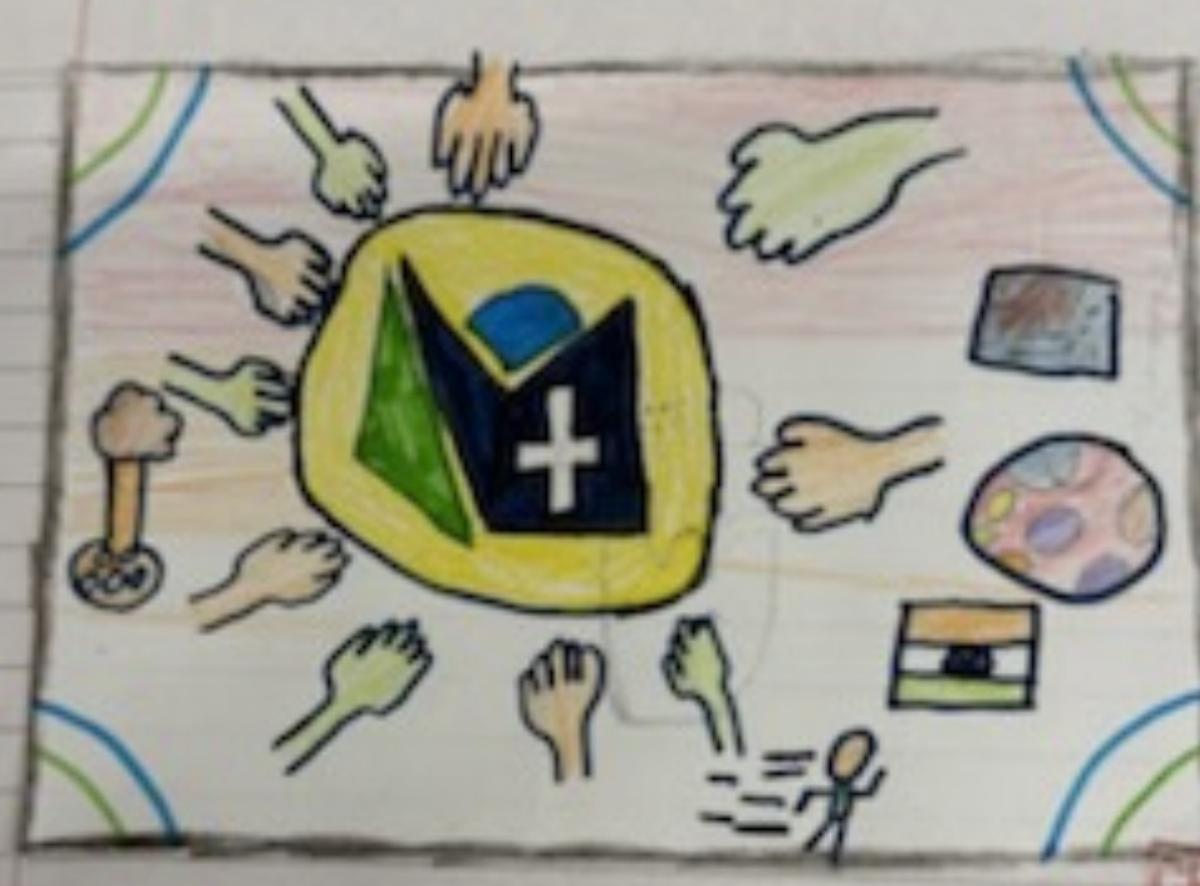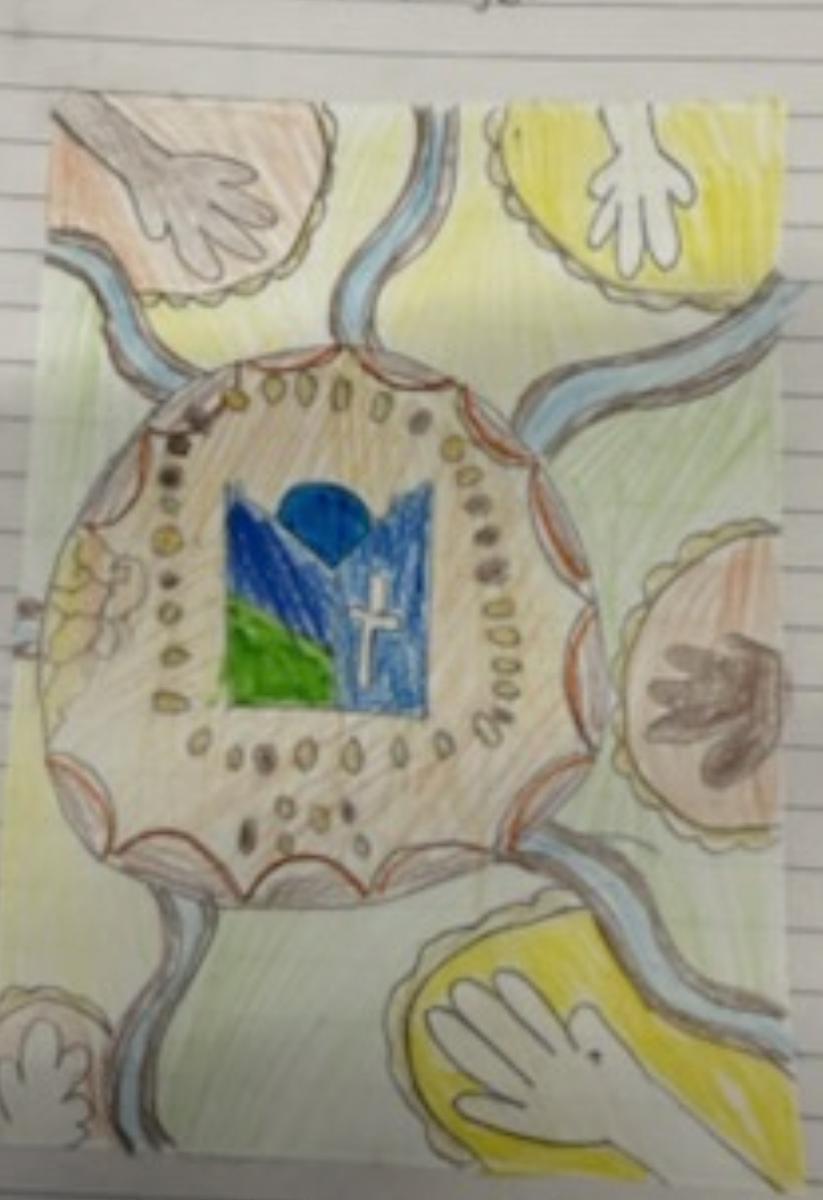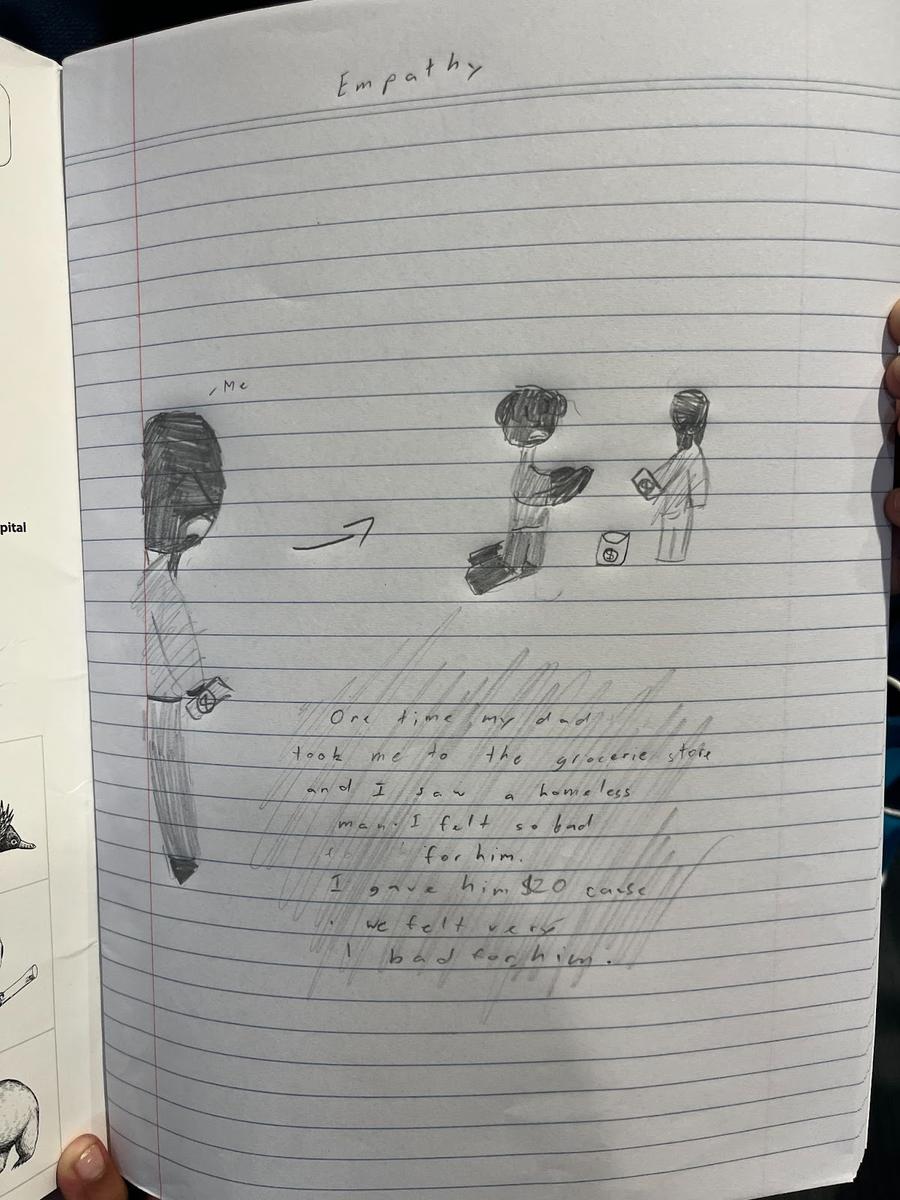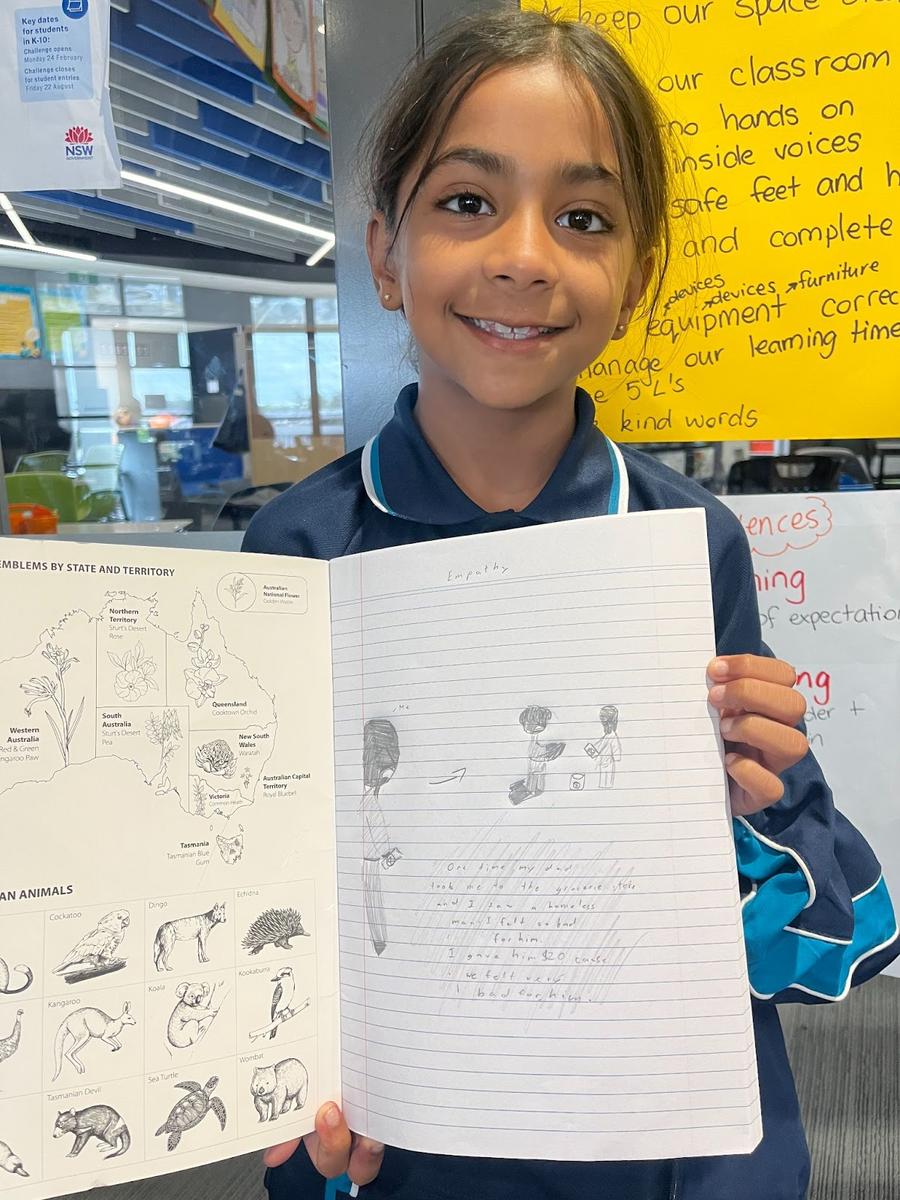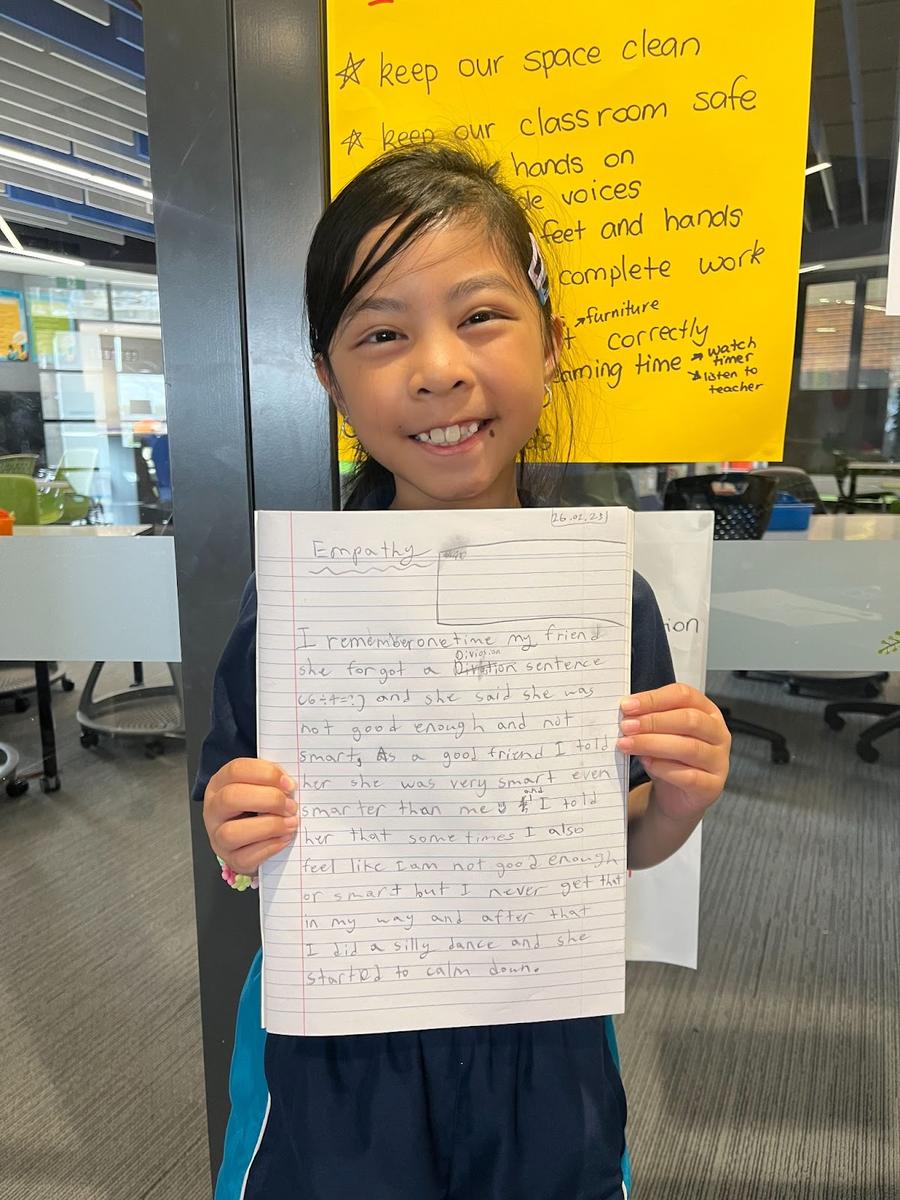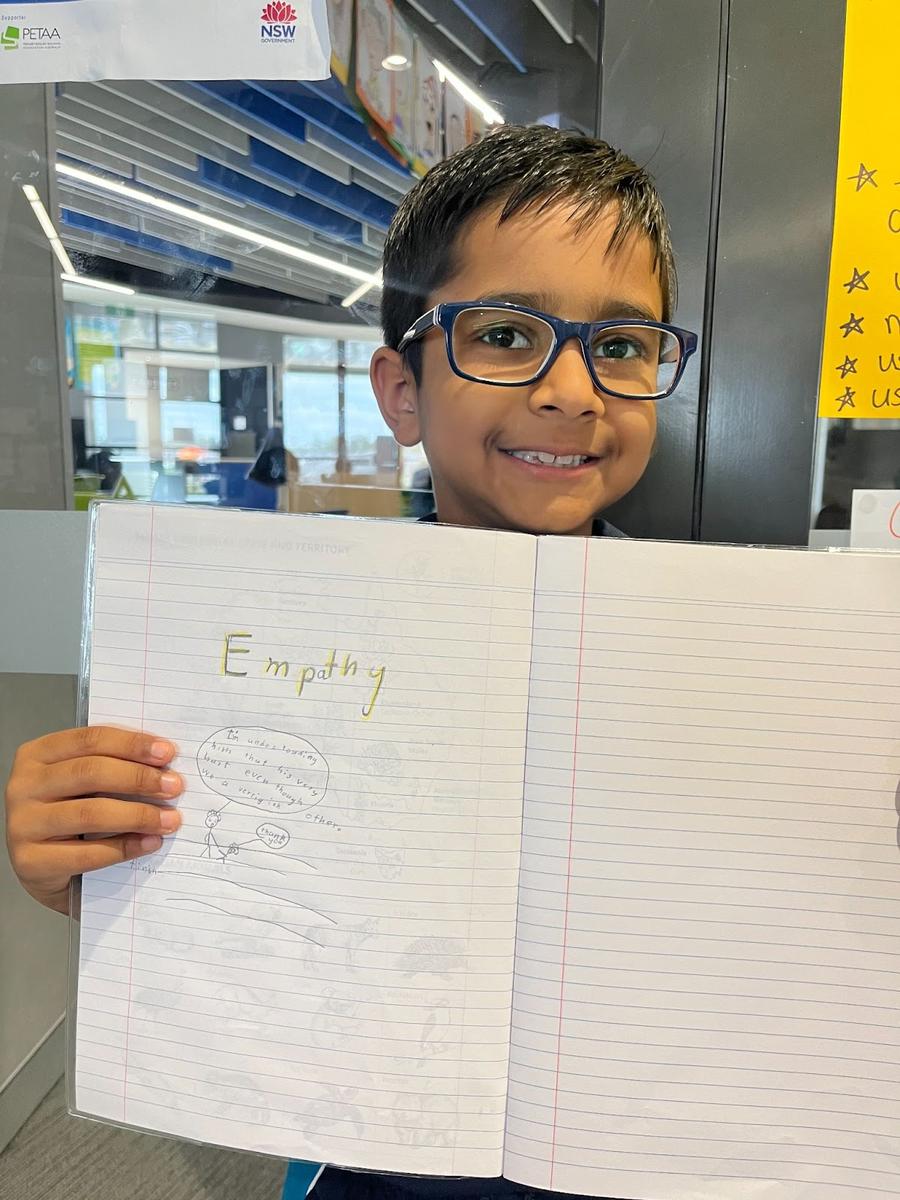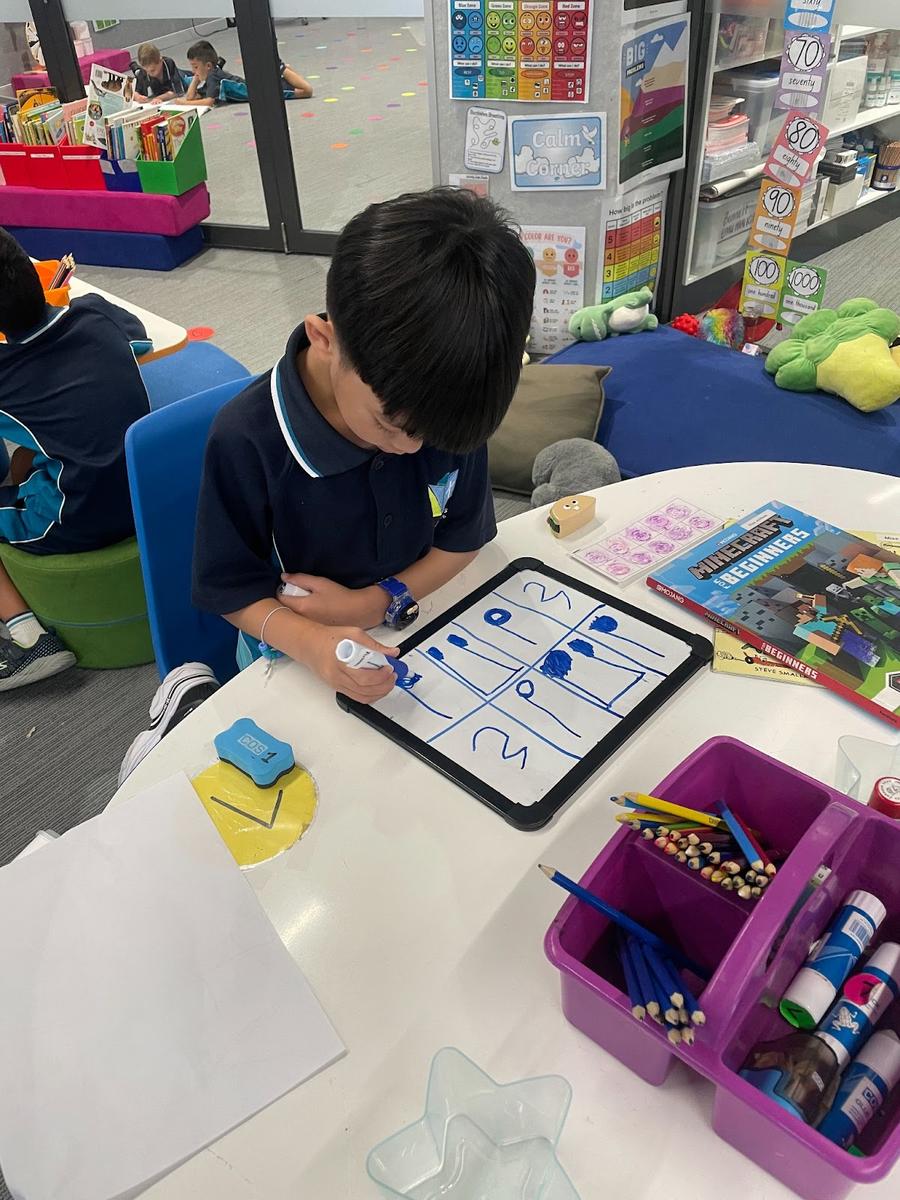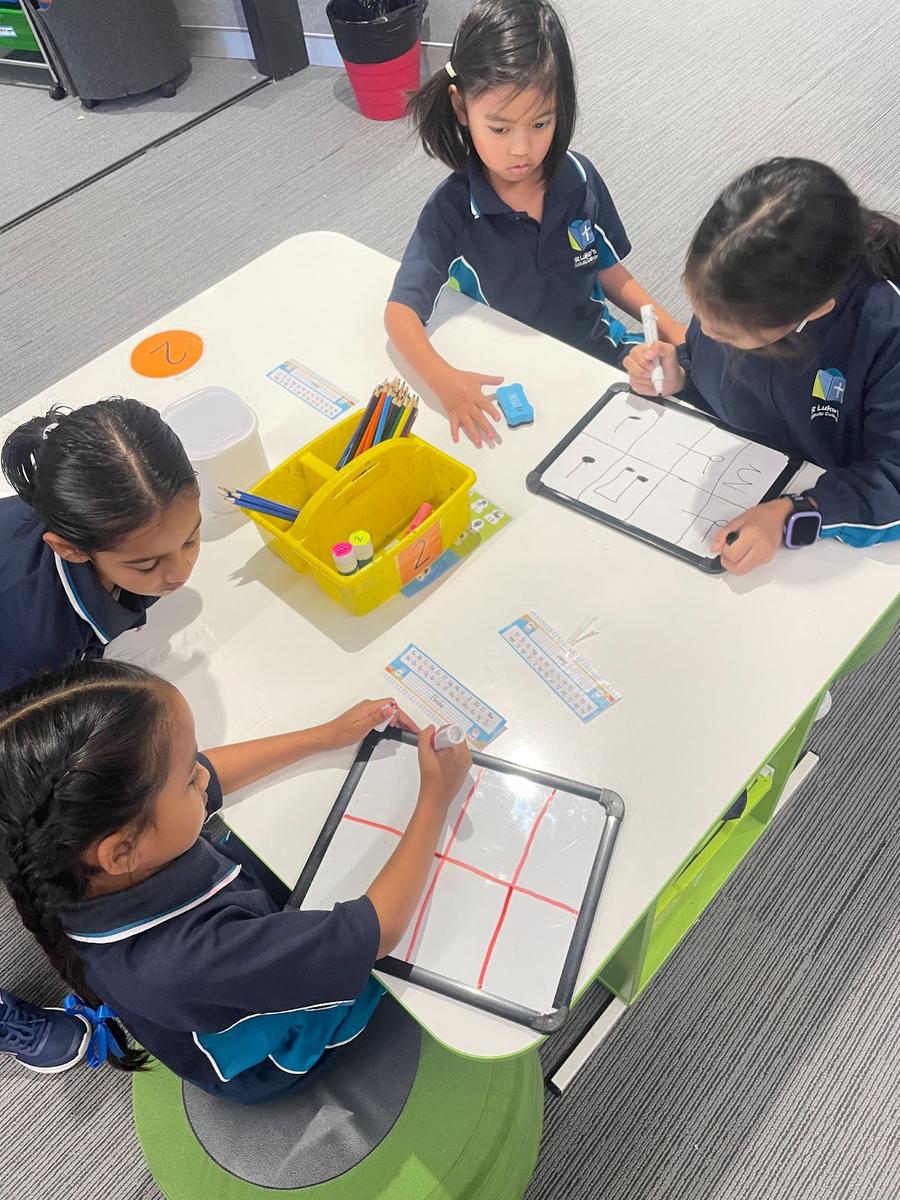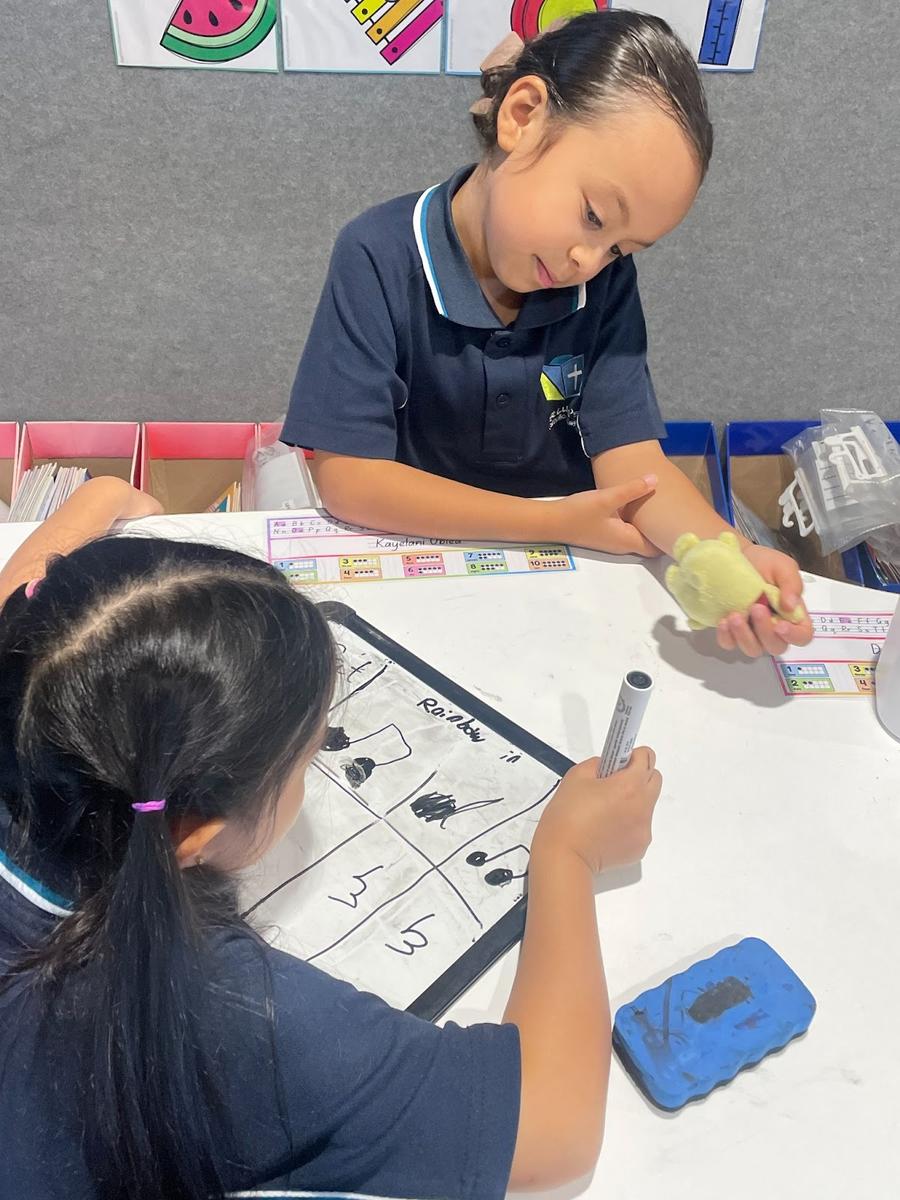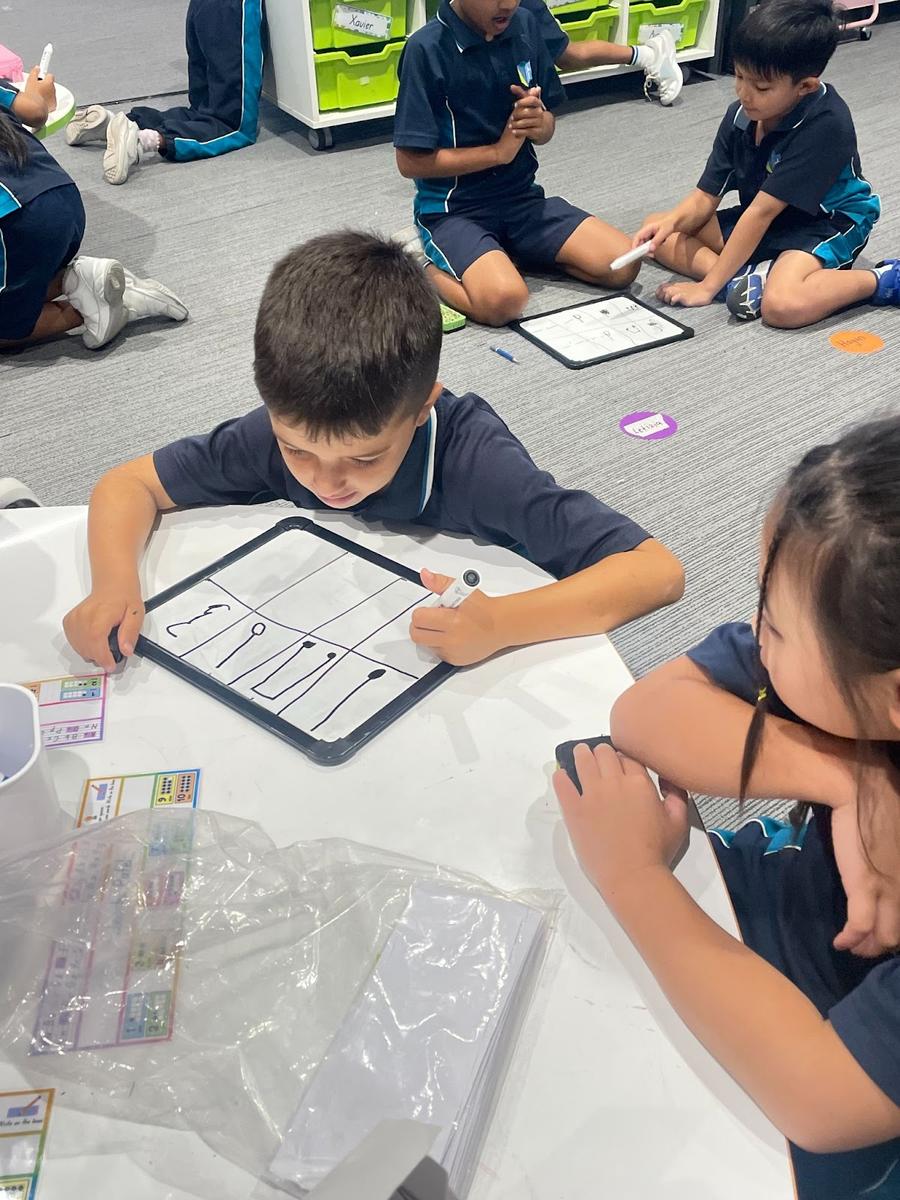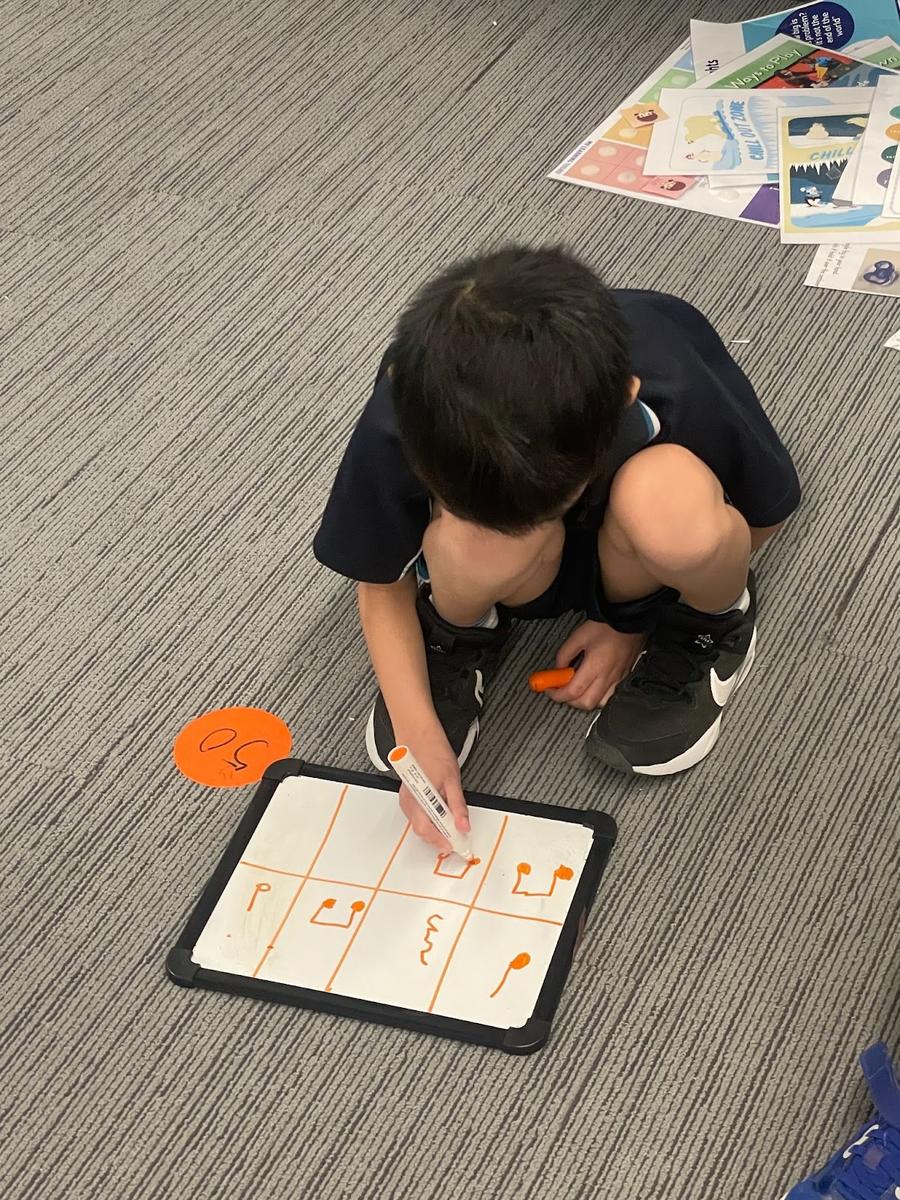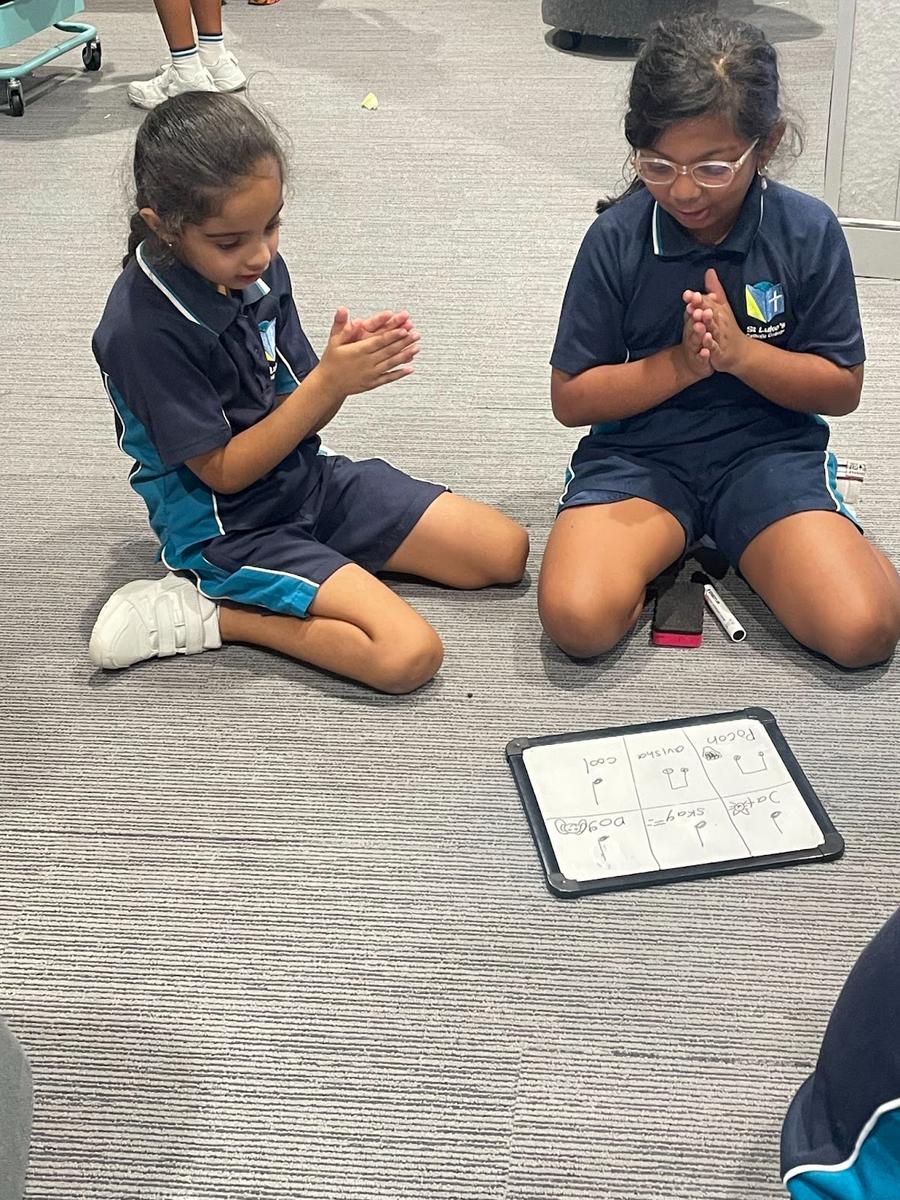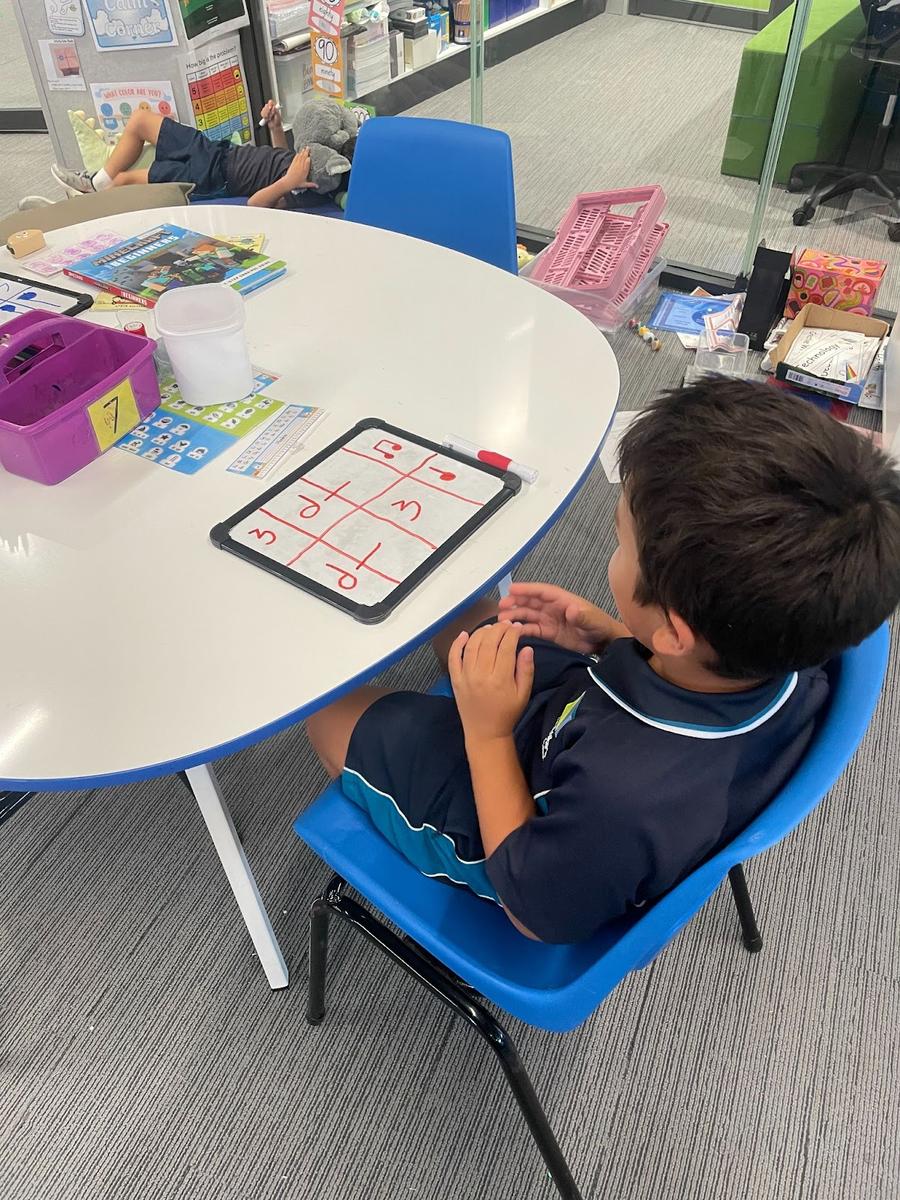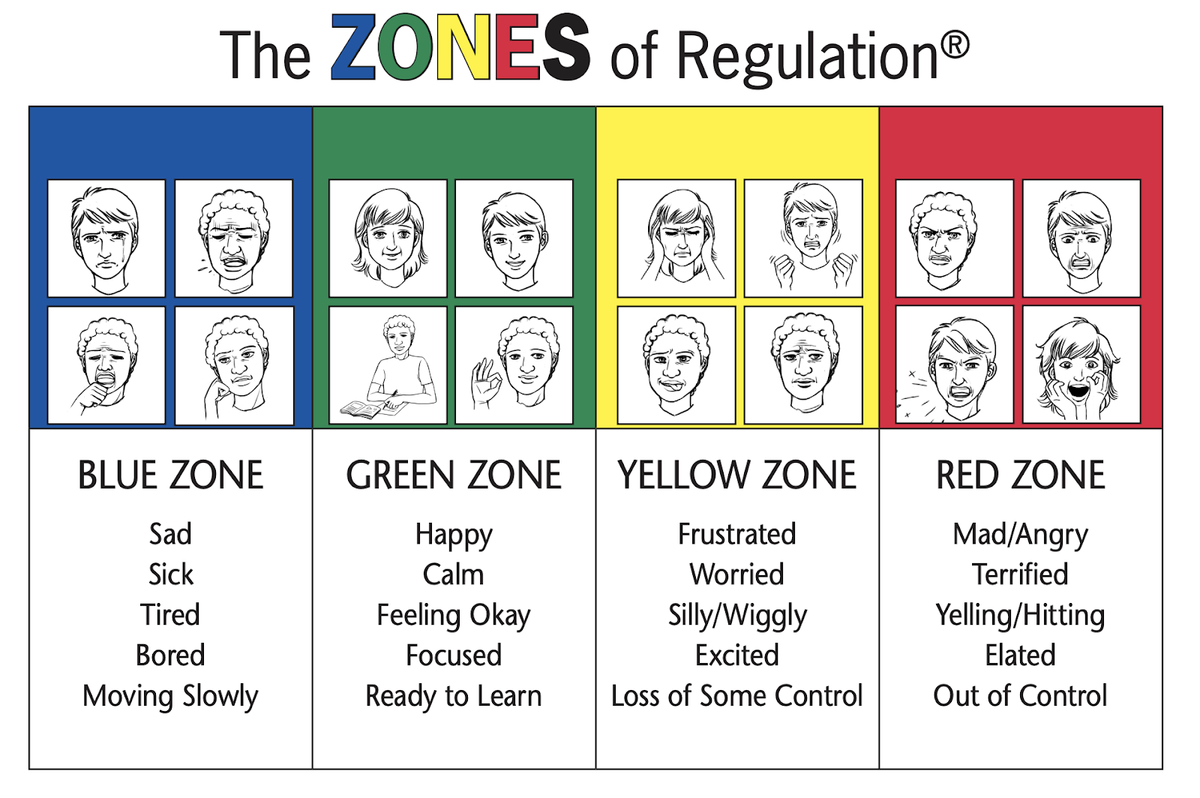School of Foundations
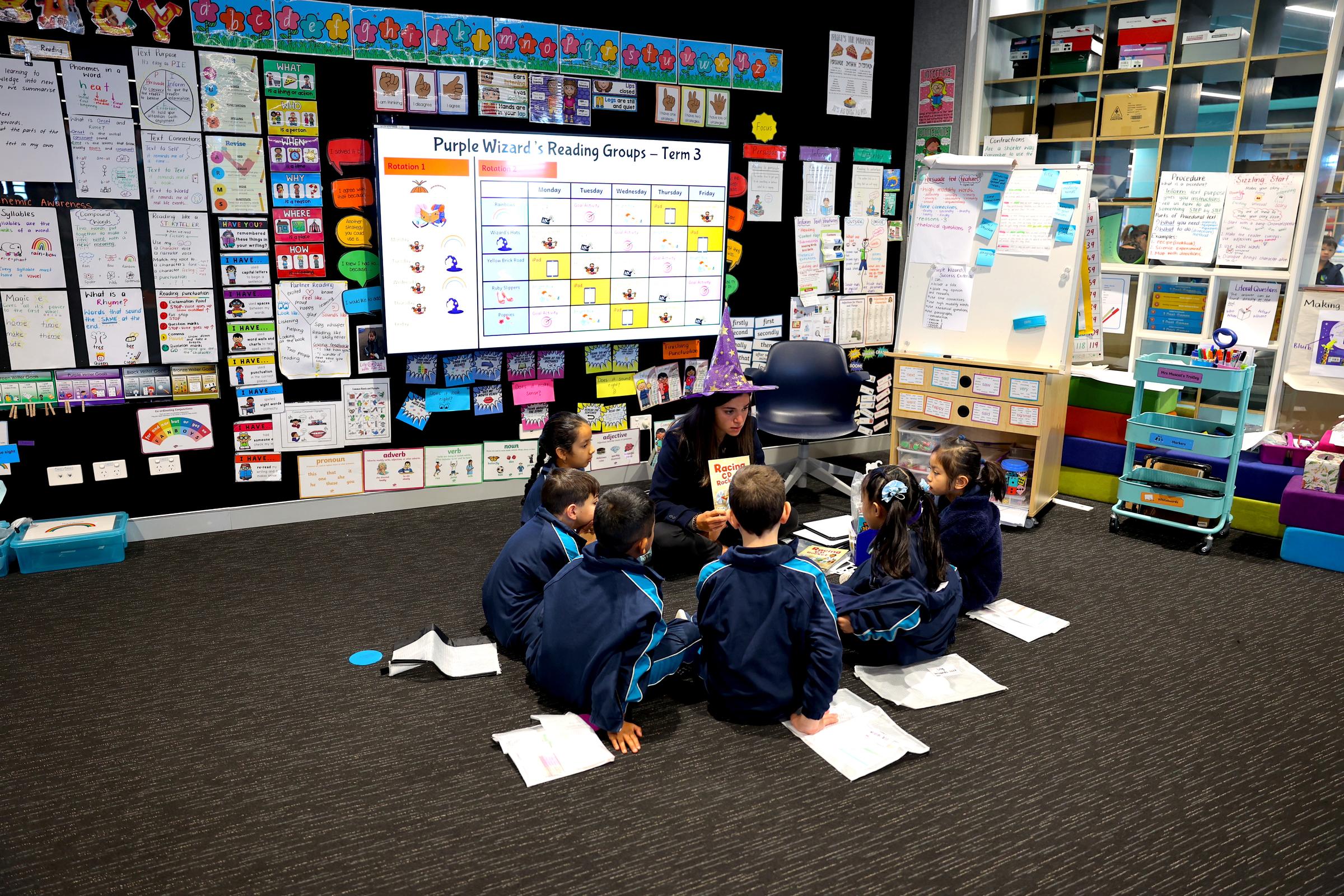
HOS The Net, Week 6, Term 1, 2025
Ash WednesdayWhat a wonderful way to commence the Lenten Season, celebrating as the School of Foundations with Fr Gayan. The students reflected upon the ways they can renew their relationship with God, friends and family by saying sorry. The ashes we received in the shape of a cross on our foreheads reminded us that we can always seek forgiveness when we are truly sorry.
SOF Masses - Tinmen
This week, our Year 2 Tinmen students also attended Mass with Fr Gayan. This was a tremendous opportunity for our students to intimately come to experience the structure of the Mass and the meaning behind the prayers, rituals and eucharist. The Tinmen students displayed reverence and respect in the way they participated and reflected afterwards.
The students were amazed at Fr Gayan’s creative skills, transforming a paper aeroplane into a rocketship, and then into a Cross, as he spoke of the ways we can “travel” with and towards God.
Premier’s Reading Challenge - PRCSo excited to see many of our students have commenced the Premier’s Reading Challenge! Congratulations to ….
….Year 3 who have accumulated the most number of books read this week! Woohoo! As you can see, the tally is close at the moment, so it will be interesting to see the results next week. Congratulations to all who have set themselves this challenge and enjoy reading!
We hope you enjoy reading about our learning adventures in this week’s The Net.
Thank you for your continued support.
Nicole Emerton - Head of School - School of Foundations (Acting)
Kindergarten
English
In English, Kindergarten students have been learning to write about their weekends, sharing their experiences through both pictures and sentences. After drawing their pictures, they have been working on writing simple sentences to match their drawings, using familiar sight words and sounds they have learned so far. Alongside this, students have also been fine-tuning their fine motor skills through hands-on activities such as tracing, and manipulating small objects. They have been engaging in letter-matching games, alphabet hunts, and letter formation practice to help build their confidence in recognising and writing letters.
Mathematics
In Mathematics, Kindergarten students have been exploring patterns and numbers. They have been learning to copy, continue and create repeating patterns using sounds, actions, shapes, objects, and pictures. Through hands-on activities, they have also been developing their ability to recognise number patterns, including familiar dot patterns on dice and dominoes, as well as different ways to show the same number using their fingers.
Religion
In Religion, Kindergarten students have been learning about friendship through the teachings of Jesus. They are beginning to explore how Jesus shows love and kindness to others and how His words and actions serve as a model for being a good friend. Through the story, Jesus Blesses the Little Children (Mark 10:13-16), students have reflected on the importance of friendship.
History
In History, Kindergarten has been learning about family histories. Students have been able to explore how families have changed over time. Students have also been able to appreciate that all families are different and special. This has led to students sharing stories about their own families, through a family tree and the celebrations/ traditions they have experienced.
Stage 1
English - Glindas
In Writing, we have been learning to write personal recounts and have now moved on to informative writing. Students are encouraged to use time words such as First, Next, Then, After that, Finally to organise their writing. We also encourage students to add feelings to make their writing more engaging. For informative writing, students are exploring this text type’s key elements while integrating geography by writing about a place that is special to them.
In Reading, we are focusing on strategies to become good readers. The selected texts include both stories and informative texts, helping to enhance students' reading fluency, comprehension and writing skills.
For Phonics (Soundwaves), our focus over these two weeks has been on the sounds ‘k, c, q, ck, x, ch’ and ‘e, ea’. Students are consolidating their learning through various activities such as segmenting, spelling, sentence building and story retelling. We are excited to see students applying these skills in their all areas of their learning!
Mathematics - Lions
In Maths we have been working on Units of Measurement which introduces students to basic concepts of length, weight, area and capacity. We have been learning to compare and measure objects using informal units, such as using rulers to measure length, scales to measure weight, and containers to explore capacity as well as non standard measurement such as unifix cubes and paddlepop sticks. Students have also begun to use vocabulary such as long, short, heavy, and light which helps them to develop essential skills for understanding the world around them through measurement.
This week we made rulers with the class to help us measure the length and width of objects using informal units.
Religion - Andrew Chinn - Tinmen
Our new parish priest, Father Gayan, recently visited all the School of Foundations classrooms including Stage 1. Students enjoyed the opportunity to ask questions about Jesus, God, and the role of a priest.
As we prepared for reconciliation, we discussed how Holy Water becomes sacred through a priest’s blessing and learned about Jesus’ baptism in the River Jordan.
We also attended the School of Foundations Formation Day, which focused on the Jubilee Year and how we can be pilgrims of hope. Students explored the idea of a pilgrim as someone who embarks on a journey to deepen their relationship with God.
Additionally, Andrew Chinn taught us several songs that we will continue to use for morning prayer and meditation sessions.
Incursion - Wizards
This week, Stage 1 students participated in an incursion hosted by Ranger Jamie Tours. Students were immersed in two hands-on activities - rocket design launching as well as go-kart racing. These activities sparked not only team-building skills and collaboration, but also curiosity and a wonder of how the general science behind forces work. We received wonderful feedback from the students of how much they enjoyed the session and we hope Ranger Jamie Tours visits St Luke’s again!
Stage 2
English
In English, Stage 2 has been engaging with a number of different texts with different purposes.
Students are learning to read for meaning, checking that they understand what they are reading. This can be done through making predictions, summarising a text or answering different types of questions about what they have read.
During writing, students received a stimulus to drive their writing, using pictures, questions and topic ideas. Students are learning to plan their work in an organised and detailed way, as well as editing and revising their work to make sure their sentences make sense. Stage 2 students are gaining confidence in their writing abilities.
Maths
In Mathematics, Stage 2 students are building their skills in addition and subtraction by using and drawing MAB (Multibase Arithmetic Blocks) to show their working out. By representing numbers with units, tens, hundreds and thousand blocks, students develop a strong understanding of place value and number relationships. This hands-on approach helps them break down problems, regroup where necessary, and visualise their calculations effectively.
Through practice with MAB blocks, students gain confidence in solving problems accurately and efficiently.
Religion
Over the past two weeks, our Stage 2 students have been exploring their own communities and what makes them unique. As part of their Religious Education inquiry, the students designed an artwork to illustrate and represent a community they are a part of, exploring how their community supports others and assists those who may be less fortunate.
To extend the student’s understanding of community groups who support others, we will be exploring the work of Caritas Australia; an aid agency of the Australian Catholic Church which is a recognised charity in Australia, working to eradicate poverty and injustice.
Health
In Health, Stage 2 students explored the topic of "Empathy." They learned about its meaning, how to include others, and the importance of kindness through empathy. Students engaged in discussions and wrote about how they demonstrate empathy in their own lives using illustrations, sharing real-life examples. They also reflected on ways they could further show respect and empathy toward themselves, others, and the environment.
Music
Throughout the first half of this term in Music, SOF students have been learning about the concepts of beat and rhythm, and learning to perform and compose rhythms using a range of notes. This week, students had the opportunity to create their own rhythms on whiteboards, adding words with the matching number of syllables, and then practising performing their rhythms with a peer. Throughout this unit, students have developed their sense of beat and timing, learned to read musical notation, and practised working cooperatively with their peers. These skills will be an important foundation for their future learning in Music throughout the year.
Wellbeing
We would like to remind you about an important framework that helps children understand and regulate their emotions: the Zones of Regulation. This approach is designed to help kids identify and manage their emotional responses in a positive, constructive way.
The Zones of Regulation categorises emotions into four different "zones," which represent how a child is feeling at any given moment. Here’s a brief overview:
- The Blue Zone – This zone represents low energy and feelings of sadness, tiredness, or boredom. Children in the Blue Zone may need rest, a break, or support to re-energize.
- The Green Zone – This is the optimal zone for learning and socialising. Children feel calm, focused, and happy in this zone. When children are in the Green Zone, they can engage with others and handle daily tasks effectively.
- The Yellow Zone – This zone reflects heightened emotions, such as frustration, anxiety, or excitement. When children are in the Yellow Zone, they may need guidance to regain focus and manage their feelings before they escalate.
- The Red Zone – The Red Zone represents extreme emotions like anger, rage, or terror. In this zone, children may lose control and need time to calm down before they can engage in appropriate behavior.
By learning to identify which zone they are in, children can develop strategies to regulate their emotions and return to the Green Zone. They will also learn how to recognise and empathise with others’ emotions.
As parents, you can support your child by encouraging them to identify their emotions and use coping strategies at home, such as deep breathing, taking a break, or talking about their feelings. You can also work together to set up personalised "toolboxes" with strategies to manage different zones.
Thank you for partnering with us in fostering emotional awareness and self-regulation in your child. Together, we can help them build the skills they need to navigate their emotions and succeed both in and out of school.
For further information: https://zonesofregulation.com/how-it-works/
